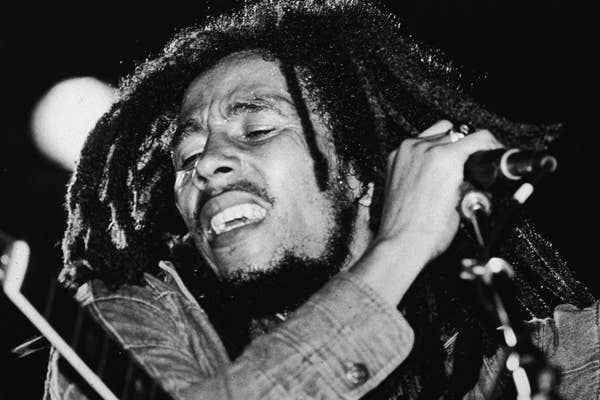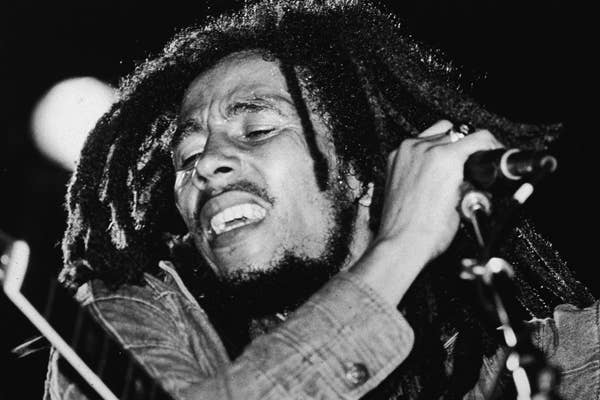
When asked about the beginnings of his music career, Robert Nesta Marley a.k.a. Bob Marley told Jamaican radio personality Neville Willoughby that he "started out crying." Though Bob never tired of playing games with interviewers' heads, his answer had at least a grain of truth to it. No matter now many times his smiling face has been appropriated as the image of ganja-fueled frat-party hedonism, the real Bob Marley was determined to risk everything so that he might use his God-given gifts to be a "wailer"—literally crying out from his soul on behalf of downtrodden people all around the world.
He did all this while championing a genre of music that was new to most international ears, while espousing beliefs that seemed far-out to say the least, and while rocking a funny-looking hairstyle and smoking some very funny-looking cigarettes. No wonder the man became a legend, a nearly mythical figure, a loved, modern-day icon of liberation and freedom. But somewhere along the way all those T-shirts and black-light posters may have obscured the fact that Marley was also one of the greatest songwriters and artists who ever lived.
As Complex celebrates the 40th anniversary of the King of Reggae's iconic album Exodus, we decided it was full time to get back to the music. So we selected these 100 songs that bear witness to the genius of Bob Marley. In just 36 short years on planet earth, this poor country boy who was born in the rural Jamaican village of Nine Mile and raised on the mean streets of Trenchtown took his music and and his message to the four corners of the earth. All those who have ears, let them hear.
Now excuse us while we light our spliff.
Listen to Complex's best Bob Marley Songs playlists here: YouTube/Spotify/Rdio
Bob Marley f/ Lauryn Hill "Turn Your Lights Down Low" (1999)
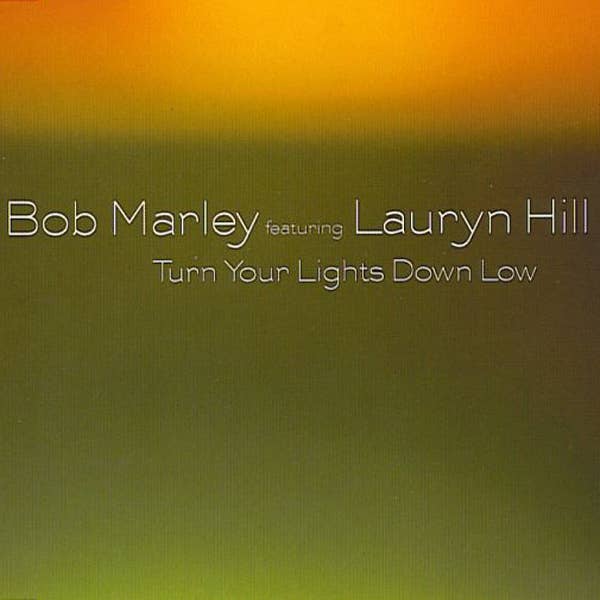
Album: Chant Down Babylon
Label: Tuff Gong / Island
Producer: Stephen Marley
The gorgeous love song that Bob wrote for Cindy Breakspeare was first released on Exodus. Stephen Marley—whose father named him for Stevie Wonder, marking him as a music man from birth—remixed the song with his sistren-in-law Lauryn Hill and splashed all over the Billboard charts with this single from the groundbreaking 1999 album Chant Down Babylon, proving once more that great songs have no expiration date.
Bob Marley & The Wailers "Africa Unite" (1979)
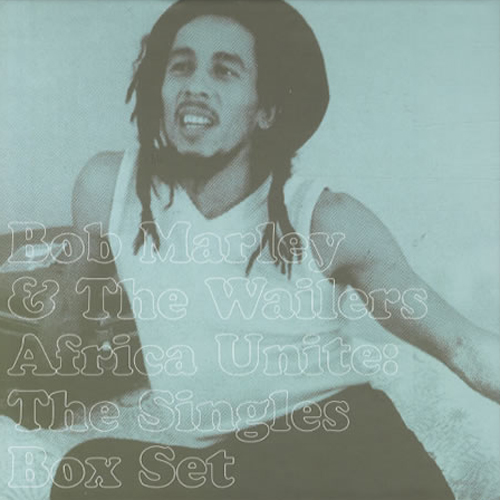
Album: Survival
Label: Tuff Gong / Island
Producer: Alex Sadkin, Bob Marley and The Wailers
More than just another reggae record, this song became a vision statement for the pan-Africanism movement. "How good and how pleasant it would be before God and man," Marley sings in Biblical cadences, "to see the unification of all Africans." On 2005, the Bob and Rita Marley Foundation organized an ongoing conference in hopes of bringing that vision to reality.
Bob Marley & The Wailers "Babylon Feel This One" (1980)
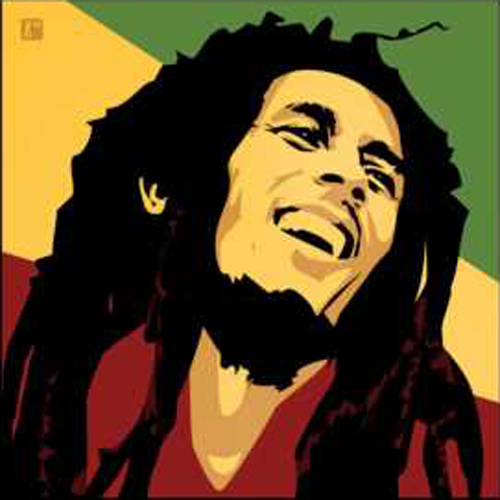
Album: Unreleased demo recording
Label: Tuff Gong
Producer: Bob Marley and The Wailers
According to Roger Steffens & Leroy Jodie Pierson's Bob Marley and the Wailers: The Definitive Discography, this officially unreleased gem was a rough demo laid down during Bob Marley's last-ever recorded session. Thirty-two years later it hits harder than ever.
Bob Marley & The Wailers "Iron Lion Zion" (1992)
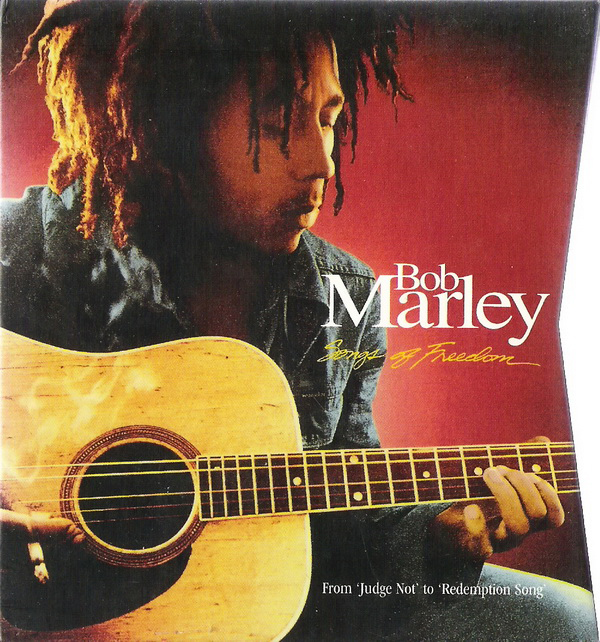
Album: Songs Of Freedom
Label: Tuff Gong / Island
Producer: Errol Brown, Ingmar Kiang, Bob Marley and The Wailers, Trevor Wyatt
Released with appropriate fanfare in 1992 as part of the four-CD Marley retrospective Songs of Freedom, "Iron Lion Zion" was recorded back in 1973, around the time The Wailers were recording Burnin', their second album for Island Records. The irrepressible tune swiftly became one of Marley's most dependable dance-floor fillers.
Bob Marley & The Wailers "Coming In From The Cold" (1980)
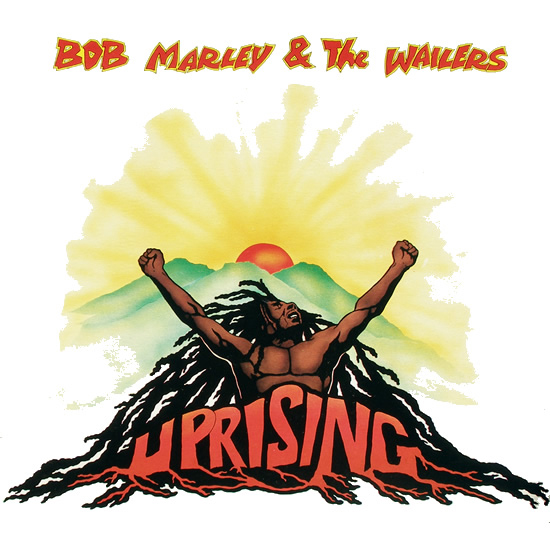
Album: Uprising
Label: Tuff Gong / Island
Producer: Chris Blackwell, Bob Marley and The Wailers
The first song on the last album released while he was still alive finds Marley in a reflective mood. "The biggest man you ever did see was once just a baby," he sings, putting all his earthly adversaries in perspective and overstanding the real situation as only Bob knew how.
Bob Marley & The Wailers "Give Thanks And Praises" (1983)
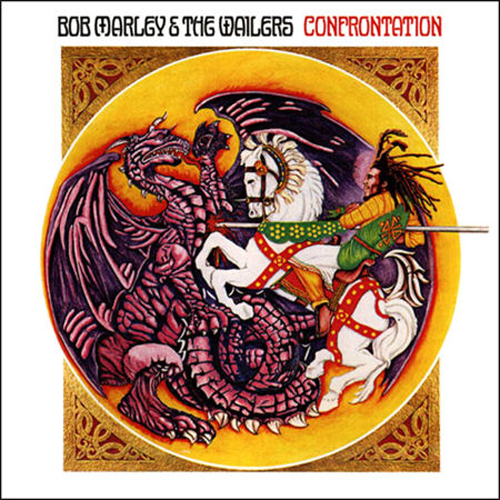
Album: Confrontation
Label: Tuff Gong / Island
Producer: Errol Brown, Rita Marley, Bob Marley and The Wailers
By the time Marley recorded "Give Thanks and Praises" his failing health would have been well known to everyone else in the studio. And while his voice sometimes bore traces of weariness, his spirit sounds undiminished. When he sings "If Jah didn't love I, would I be alive today?" he seems to be rallying his fellow musicians—and maybe himself too.
Bob Marley & The Wailers "Pimpers Paradise" (1980)
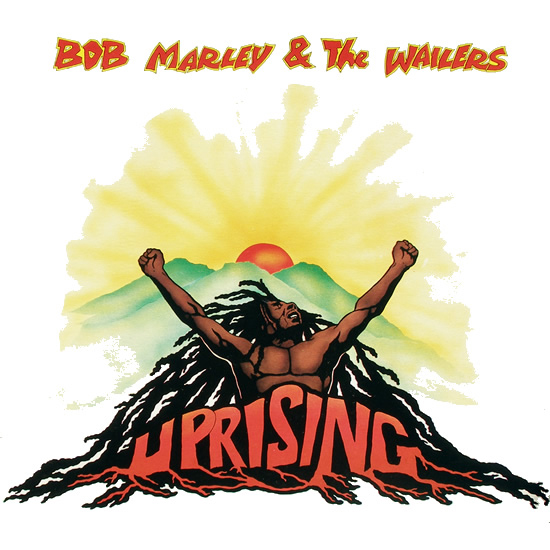
Album: Uprising
Label: Tuff Gong / Island
Producer: Chris Blackwell, Bob Marley and The Wailers
This song about a good-time girl who "be laughing when there ain't no joke" offers a small peek at the kinds of fast times Marley must have observed during his days as one of the world's biggest rock stars.
Bob Marley "Rocking Steady" (1968)
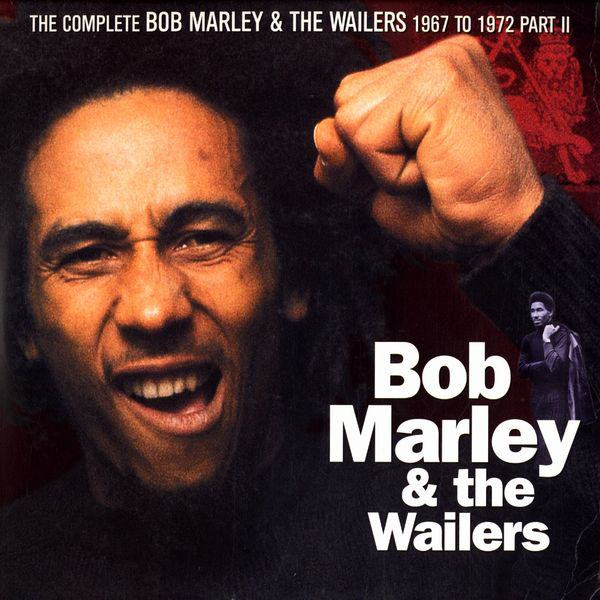
Album: The Complete Wailers: Rock To The Rock
Label: JAD Records
Producer: Johnny Nash, Danny Sims
While visiting Jamaica, America recording artist Johnny Nash discovered Bob Marley and quickly recruited him to work with JAD Records, the label he formed with his business partner Danny Sims. Although the deal would prove to be short lived, some worthwhile music survives—including this smooth, sweet pop song about the latest dance craze sweeping the island.
Bob Marley & The Wailers "Babylon System" (1979)
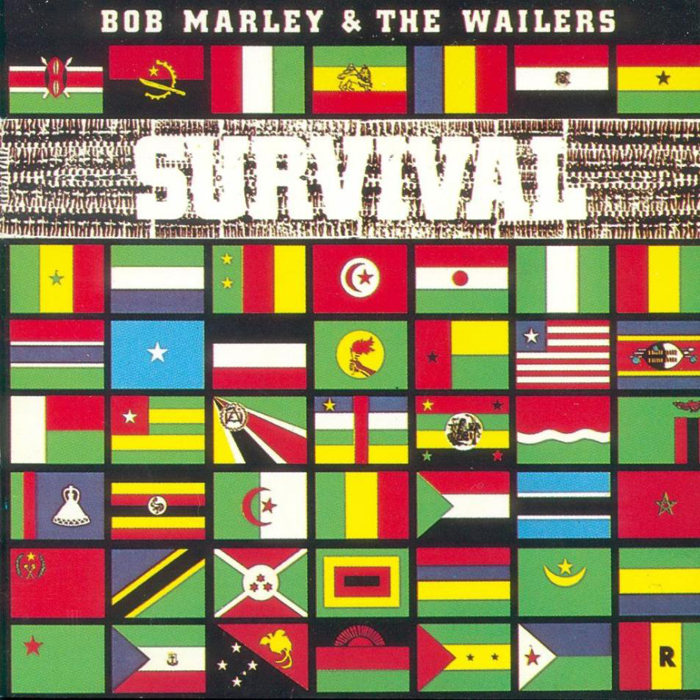
Album: Survival
Label: Tuff Gong / Island
Producer: Alex Sadkin, Bob Marley and The Wailers
The annals of reggae music are filled with vampire metaphors galore, but none more lucid that this mesmerising Marley composition with its typically defiant opening line: "We refused to be what you wanted us to be / We are what we are, that's the way it's going to be—if you don't know." Describing the parasitical power of corrupt institutions "sucking the blood of the sufferers," Marley appeals to said sufferers with a simple, insistent command: "Rebel, rebel."
Bob Marley & The Wailers "Trenchtown" (1983)
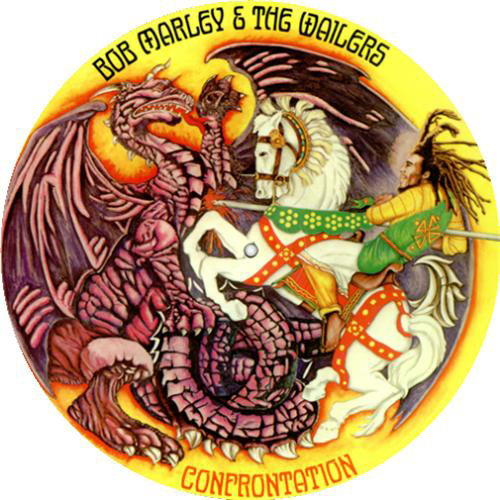
Album: Confrontation
Label: Tuff Gong / Island
Producer: Errol Brown, Rita Marley, Bob Marley and The Wailers
Recorded shortly before his death from cancer at the age of 36, many of the tracks on the posthumously released album Confrontation find Marley reflecting back over his life. This song is named for the West Kingston ghetto where The Wailers—as well as reggae legends like Ken Boothe and The Heptones—grew up. "They say, Can anything good come out of Trenchtown?" Marley sings ruefully, as if throwing his worldwide success back in the naysayers' faces.
Bob Marley & The Wailers "So Much Trouble In The World" (1979)
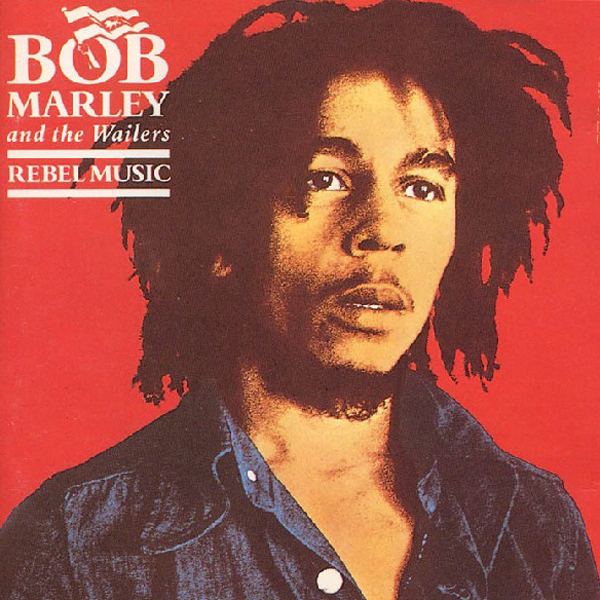
Album: Survival
Label: Tuff Gong / Island
Producer: Alex Sadkin, Bob Marley and The Wailers
"Men sailing on their ego trips," Marley sings incredulously. "Blast off on their spaceships. Million miles from reality. No care for you no care for me."
Bob Marley & The Wailers "Time Will Tell" (1978)
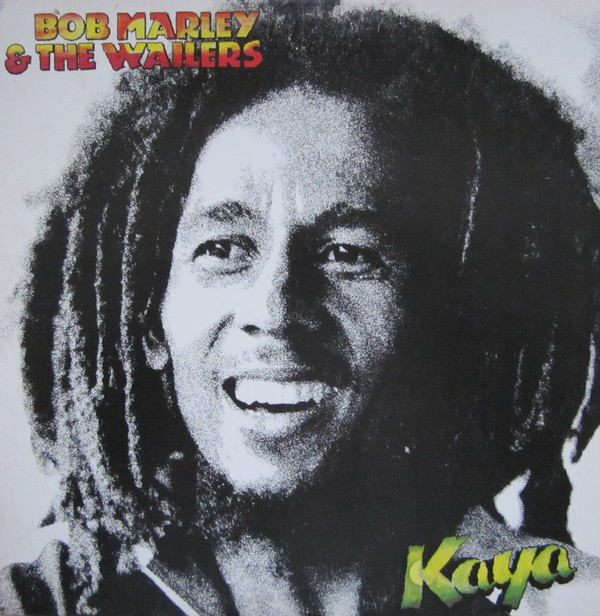
Album: Kaya
Label: Tuff Gong / Island
Producer: Bob Marley and The Wailers
This gentle lilting tune from the Kaya album feels more like a hymn than a pop song. The closing line—"you think you're in heaven but you're living in hell"—ranks among Marley's most haunting lyrics.
Bob Marley & The Wailers "Rastaman Live Up" (1983)
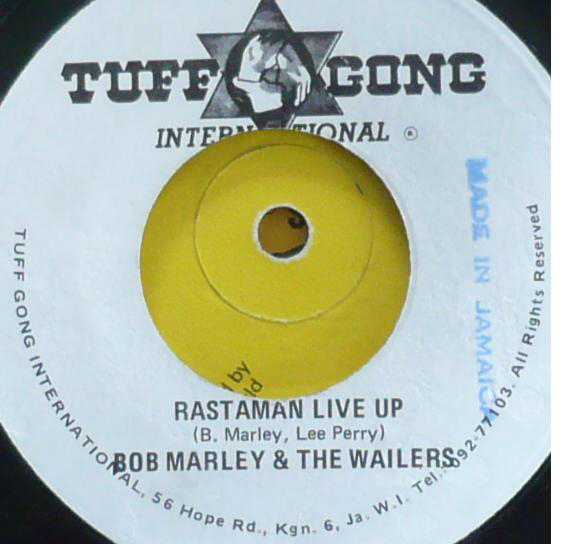
Album: Confrontation
Label: Tuff Gong / Island
Producer: Errol Brown, RIta Marley, Bob Marley and The Wailers
"Keep your culture," Bob sings on this simple yet profound affirmation of the Natty Dread worldview, "don't be afraid of the vulture."
Bob Marley & The Wailers "Ambush In The Night" (1979)
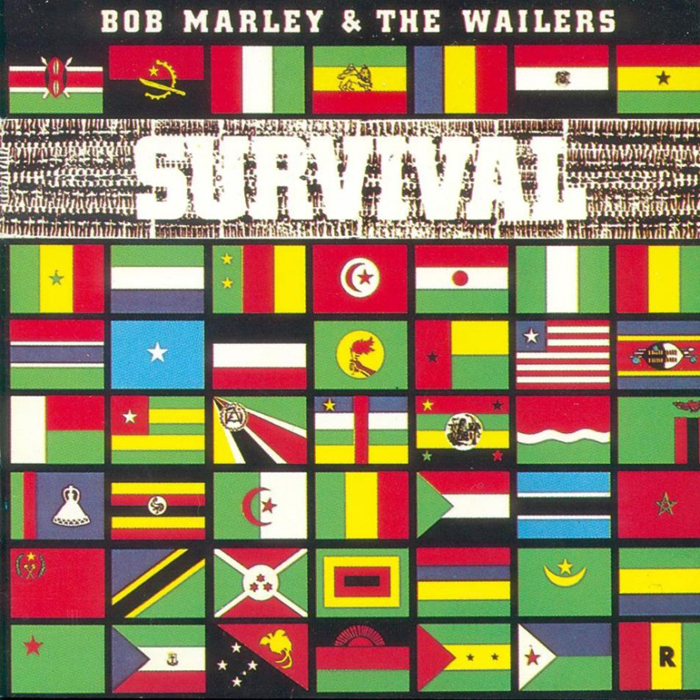
Album: Survival
Label: Tuff Gong / Island
Producer: Alex Sadkin, Bob Marley and The Wailers
It's hard not to read lines like "All guns aiming at me" as a commentary on the politically motivated shooting Marley narrowly survived back in 1976. But as always the Tuff Gong keeps his focus on the big picture, singing: "Through political strategy they keep us hungry / And when you're gonna get some food, your brother got to be your enemy."
Bob Marley & The Wailers "Is This Love" (1978)
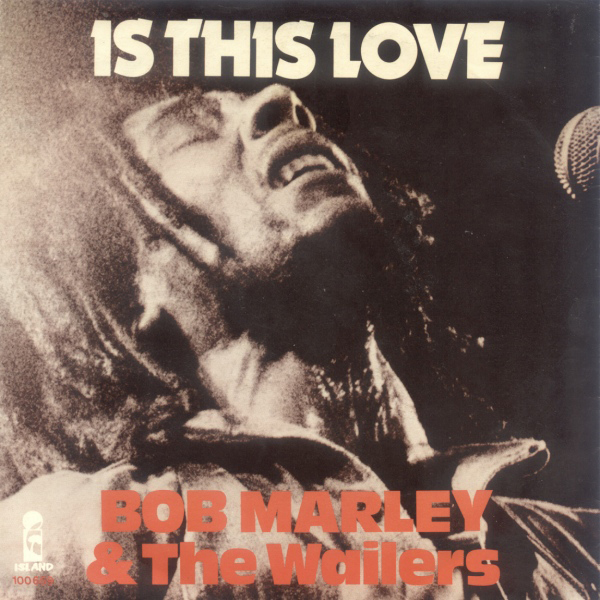
Album: Kaya
Label: Tuff Gong / Island
Producer: Bob Marley and The Wailers
What woman could resist Bob's no-nonsense declaration of affection? ("I'm willing and able, so I throw my cards on your table," he sings. "We'll share the shelter of my single bed.") But upon closer inspection, the song's vision of domestic bliss is all couched in the form of a question—as if the jury is still out. "Is this love?" Is it indeed? Ladies, check the punctuation!
Bob Marley & The Wailers "Keep On Moving" (1977)
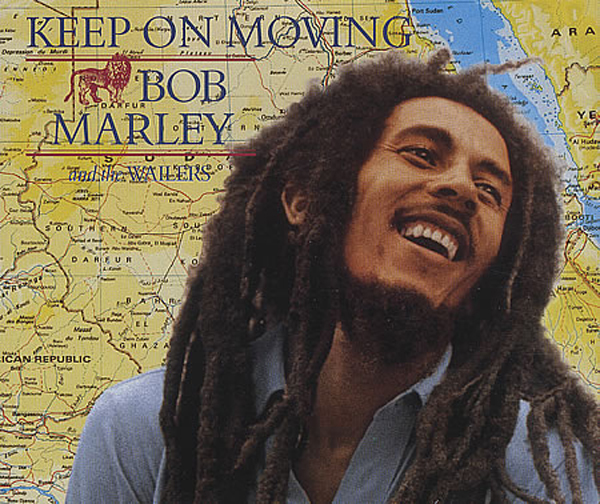
Album: Original 12" Single / Soul Revolution
Label: Tuff Gong / JAD
Producer: Lee "Scratch" Perry
This Wailers classic concerns a man who's been falsely accused of a killing and has to run from the law to save his life. When Bob recorded this version in London, he was on the move for a different reason—running from political thugs who tried to kill him.
Bob Marley & The Wailers "Real Situation" (1980)
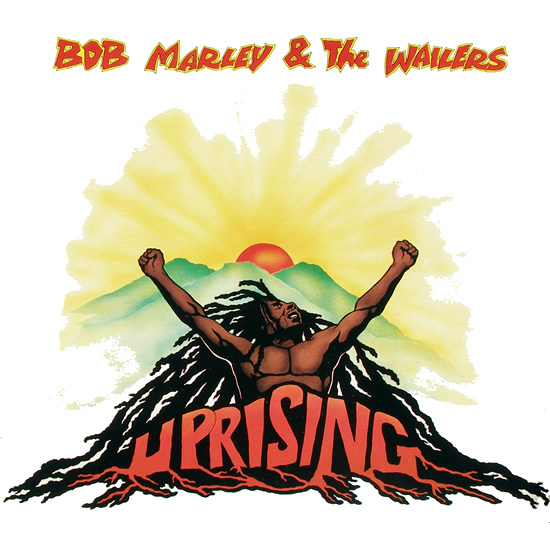
Album: Uprising
Label: Tuff Gong / Island
Producer: Chris Blackwell, Bob Marley and The Wailers
The deceptively upbeat steppers rhythm that propels "Real Situation" conceals one of Marley's more pessimistic assessments of the human condition. "It seems like total destruction, the only solution," he sings, as if throwing up his hands at the whole mess. "There ain't no use. No one can stop them now." Bummer.
Bob Marley & The Wailers "Easy Skanking" (1978)
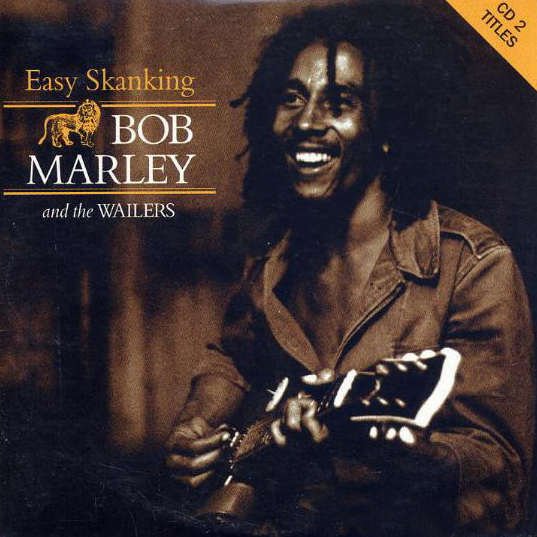
Album: Kaya
Label: Tuff Gong / Island
Producer: Bob Marley and The Wailers
Was Bob Marley referring to the late great Jimi Hendrix's "Purple Haze" when he sang the immortal line "Excuse while I light my spliff?" If anybody needs us, we'll be pondering that conundrum while skanking it easy somewhere in the clouds.
Bob Marley & The Wailers "Ride Natty Ride" (1979)
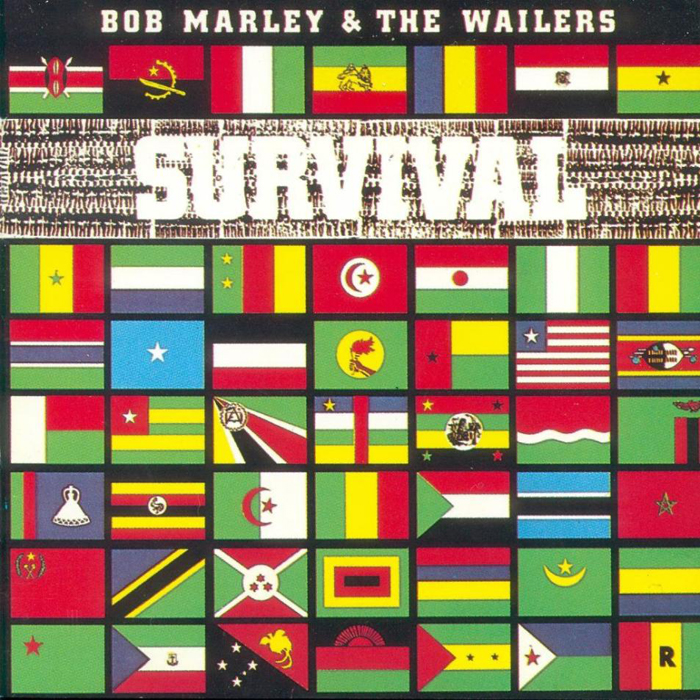
Album: Survival
Label: Tuff Gong / Island
Producer: Alex Sadkin, Bob Marley and The Wailers
Whereas Paul Revere rode around the American colonies spreading the word that "the British are coming," Marley's dreadlocked messenger on horseback delivers the news that colonial powers will soon be run out of Africa. "No matter what game they play," he sings, "we've got something they can never take away—and that's the fire that's burning down everything." Blaze it up.
Bob Marley & The Wailers "Who The Cap Fit" (1975)
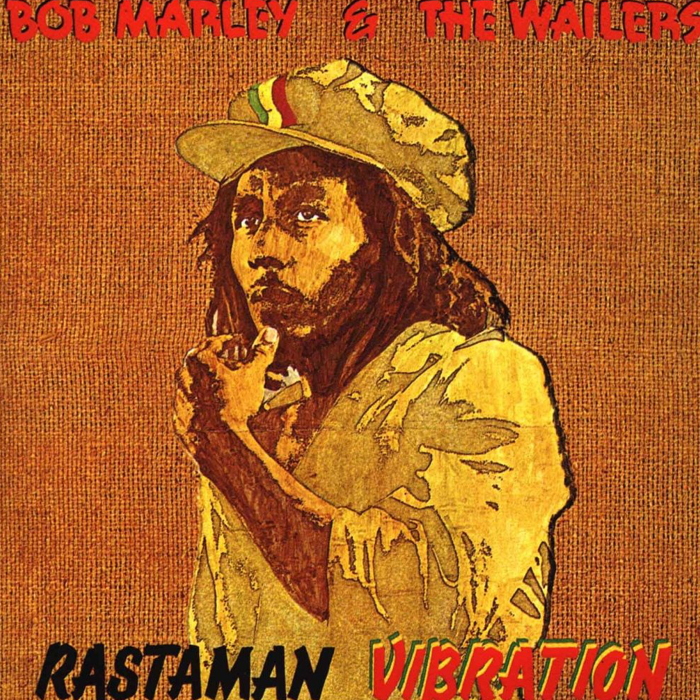
Album: Rastaman VIbration
Label: Tuff Gong / Island
Producer: Bob Marley and The Wailers
Speaking truth to power can be a dangerous game, which is why reggae music is often filled with double-entendres and innuendos. But in this song, Bob let all his listeners know in no uncertain terms: If the cap—or the shoe, or the blazing social criticism—fits you, then please go ahead and wear it. And if ya don't know, now ya know...
Bob Marley & The Wailers "Running Away" (1978)
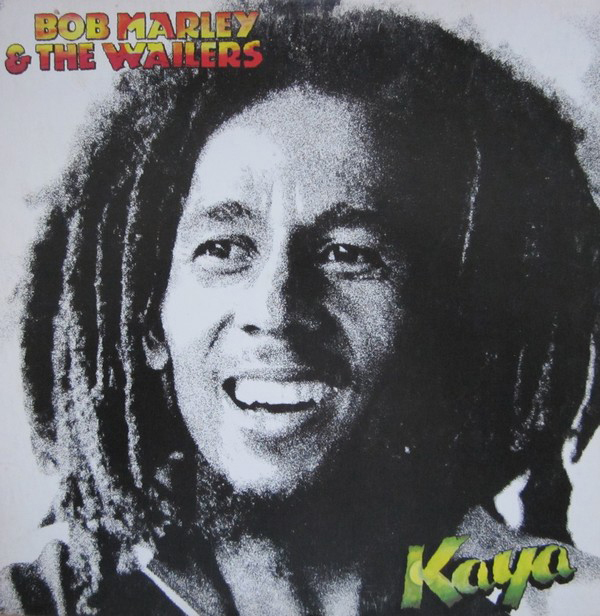
Album: Kaya
Label: Tuff Gong / Island
Producer: Bob Marley and The Wailers
This haunting little tune seems all the more chilling when you consider the fact that it was written during Marley's self-imposed exile in England following the 1976 attempt on his life. "Every man thinketh his burden is the heaviest," Marley sings, "but who feels it knows it Lord."
Bob Marley & The Wailers "Smile Jamaica" (1976)
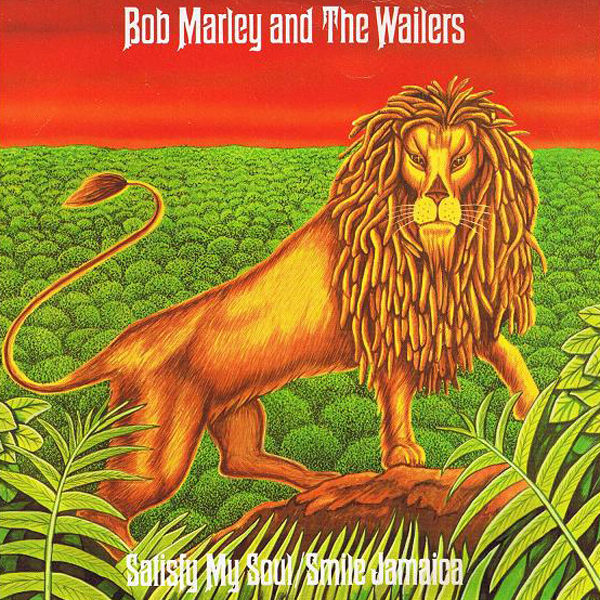
Album: Original Jamaican 45" / Songs of Freedom
Label: Tuff Gong / Island
Producer: Lee "Scratch" Perry
"This feeling wouldn't leave me alone," Marley sings on a song that was intended to be a sort of morale booster but now evokes memories of political tension and bloodshed. Shortly before he was to headline the free "Smile Jamaica" concert in 1976, Marley became the target of an assassination attempt by political thugs who infiltrated his compound at 56 Hope Road and shot him, his wife Rita, and his manager Don Taylor. In a fearless show of defiance, the Tuff Gong went on with the show anyway, performing with his bullet wounds bandaged before leaving Jamaica and beginning work on his album Exodus. So it's perhaps understandable that he couldn't find much to smile about.
Bob Marley & The Wailers "Lively Up Yourself" (1975)
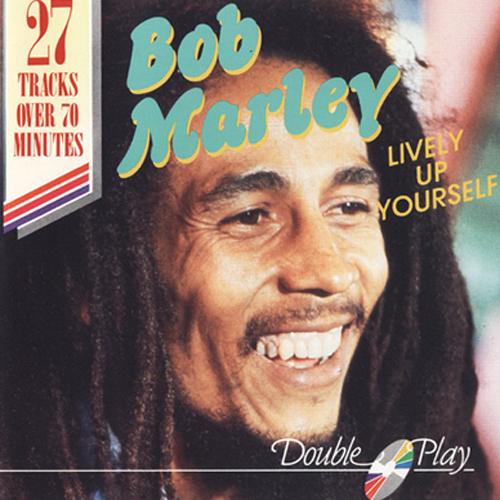
Album: Natty Dread
Label: Tuff Gong / Island
Producer: Chris Blackwell, Bob Marley
"Don't be no drag," Marley sings, "cause reggae is another bag." A musical call to action in the tradition of "Get Up Stand Up," this song became a staple of Bob's live set. He could always count on "Lively Up Yourself" to move the crowd.
Bob Marley & The Wailers "Survival" (1979)

Album: Survival
Label: Tuff Gong / Island
Producer: Alex Sadkin, Bob Marley and The Wailers
Marley reportedly wanted this album to be called Black Survivors—and even though the title was eventually changed, the cover art showing all the flags of Africa and a diagram of how slaves were stacked like so much timber on slave ships made the message abundantly clear. Nor is there any trace of ambiguity or compromise on the album's blistering title track.
Bob Marley & The Wailers "Rat Race" (1976)
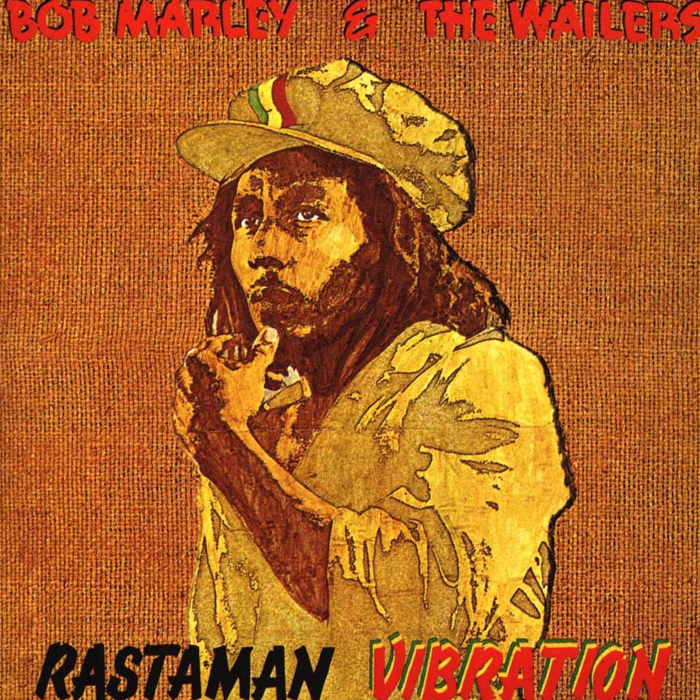
Album: Rastaman Vibrations
Label: Tuff Gong / Island
Producer: Bob Marley and The Wailers
When Marley boldly declared "Rasta don't work for no CIA," he was giving voice to the very real tensions playing out in those years when Prime Minister Michael Manley's close relations with neighboring Cuba made the streets of Kingston another front in the Cold War. "You've got the horse race, you've got the dog race, you've got the human race," Bob sang bitterly. "But this is a rat race."
The Wailers "Soul Shake Down Party" (1970)
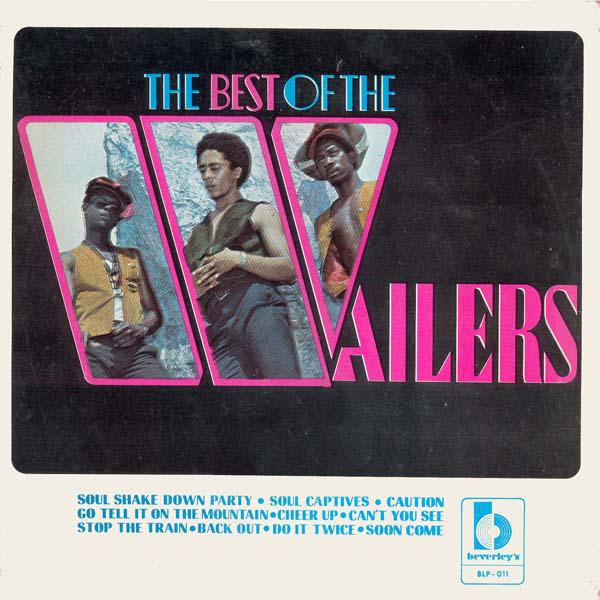
Album: The Best Of The Wailers
Label: Beverley's
Producer: Leslie Kong
Some parties may be free-for-all "Jumby Jamborees," but the best parties are by special invitation only. When Marley sings "I need your concentration just to feel your vibration," it's clear that the sort of "Soul Shakedown Party" he's thinking of is very exclusive indeed—a party of two, to be exact.
Bob Marley & The Wailers "Crazy Baldheads" (1976)
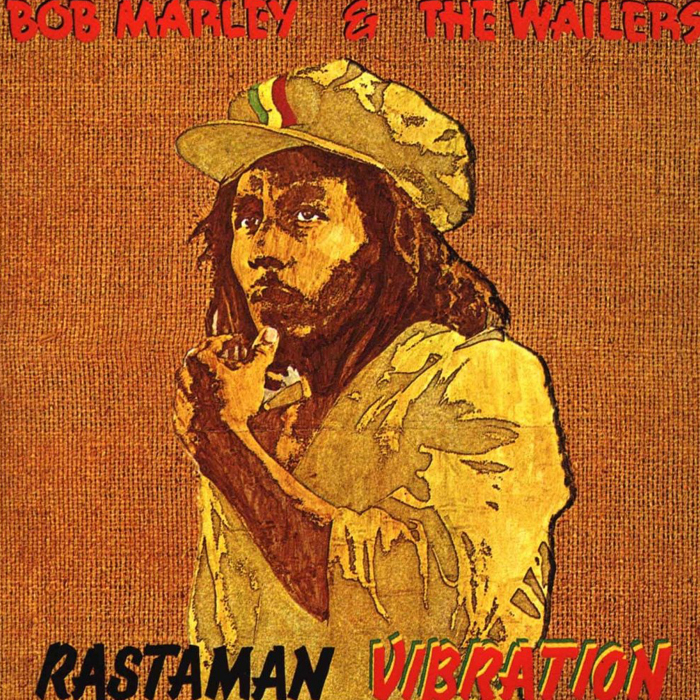
Album: Rastaman Vibration
Label: Tuff Gong / Island
Producer: Bob Marley and The Wailers
One of Marley's most unambiguously revolutionary songs, this call to "chase those crazy baldheads out of town" leaves little to the imagination. "Build your pentitentiaries, we build your schools," Bob sings over the Barrett brothers' plodding drum and bass. "Brainwash education to make us the fools."
The Wailers "One Love" (1965)
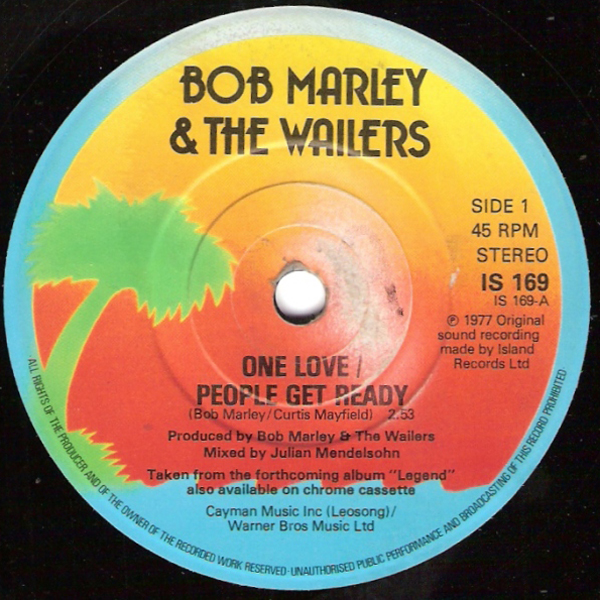
Album: Original Jamaican 45" / Songs of Freedom
Label: Studio One / Island
Producer: Bob Marley and The Wailers
The laid-back 1970s version heard on Exodus and may be better known, but the original "One Love" was a rousing horn-driven song that still rocks as hard as ever all these years later.
Bob Marley & The Wailers "Roots" (1975)

Album: Rebel Music
Label: Tuff Gong / Island
Producer: Chris Blackwell, Bob Marley and The Wailers
This little-known Tuff Gong single predates the popular American miniseries by two years. "Some a leaf, some a branches," Bob observes. "I and I are the roots."
The Wailers "Slave Driver" (1972)
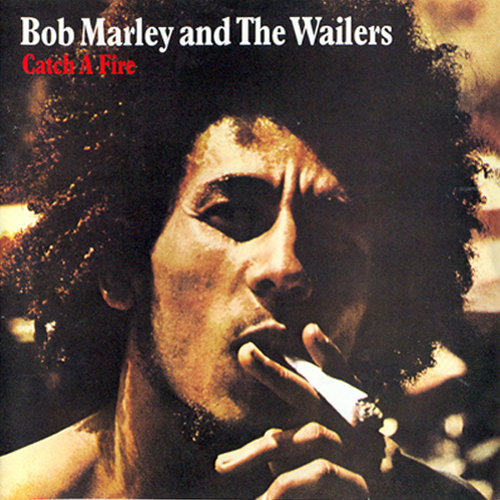
Album: Catch A Fire
Label: Tuff Gong / Island
Producer: Chris Blackwell, Bob Marley and The Wailers
Like some sort of dreadlocked Nat Turner meting out compensatory justice, Bob Marley lets the slave driver know "the table is turned" and as a result he's "gonna get burned."
Bob Marley & The Wailers "So Jah Say" (1975)
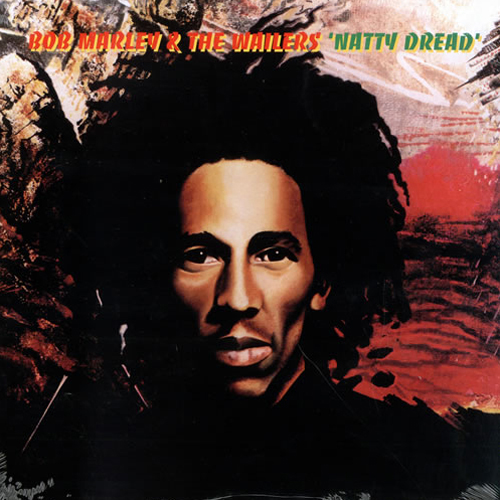
Album: Natty Dread
Label: Tuff Gong / Island
Producer: Chris Blackwell, Bob Marley
Invoking the words of His Imperial Majesty Emperor Haile Selassie I of Ethiopia, Marley constructs a declaration of human dignity that Mother Theresa would appreciate: "Not one of my seeds shall sit on the sidewalk and beg your bread."
Bob Marley & The Wailers "Walk The Proud Land" (1973)
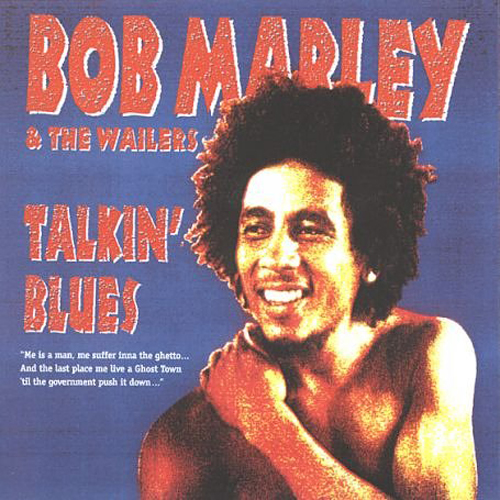
Album: Talkin' Blues
Label: Tuff Gong / Island
Producer: Bob Marley and The Wailers
Performing inside a San Francisco radio station, The Wailers deliver a once-in-a-lifetime performance of this old classic. When it was released on the 1991 album Talkin' Blues, their reworking on this mid 60s hit was nothing short of a revelation.
The Wailers "Midnight Ravers" (1972)
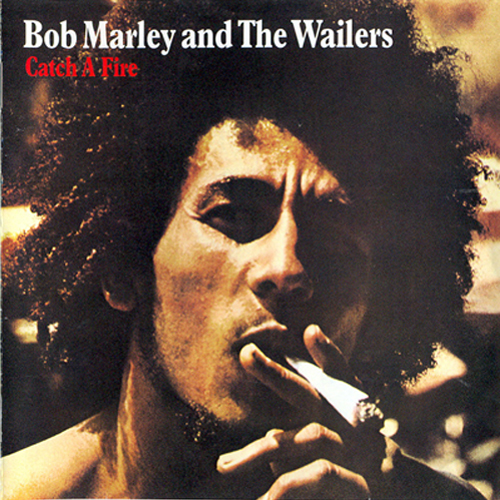
Album: Catch A Fire
Label: Tuff Gong / Island
Producer: Chris Blackwell, Bob Marley and The Wailers
A nightmarish vision of ghostly hordes roaming the streets—all "dressed in the same pollution," their minds "confused with confusion"—this song became the name of a legendary radio program on New York's WBAI FM.
The Wailers "Burnin' And Lootin'" (1973)
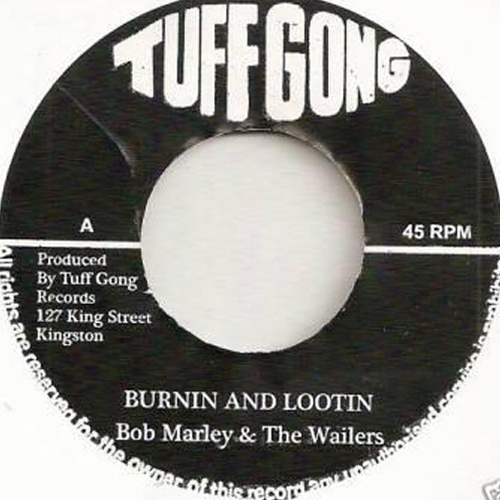
Album: Burnin'
Label: Tuff Gong / Island
Producer: Chris Blackwell, Bob Marley and The Wailers
This song paints a Kafkaesque picture of waking up in a police curfew surrounded by "uniforms of brutality." His question about "how many rivers do we have to cross before we can talk to the boss?" sums up the dilemma of all sorts of freedom fighters—from Egyptian rebels to Wall Street occupiers.
The Wailers "Guava Jelly" (1971)
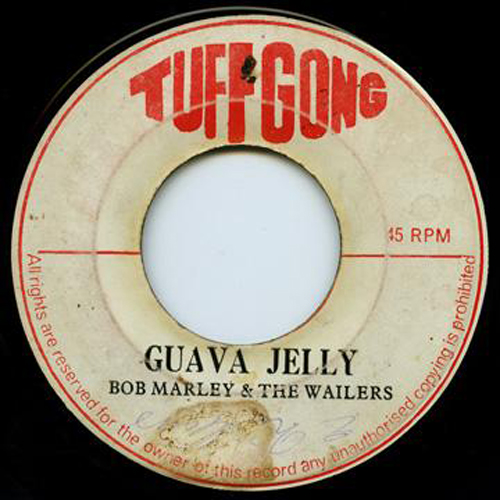
Album: Original Jamaican 45" / Songs of Freedom
Label: Tuff Gong / Island
Producer: The Wailers
Another Marley composition that was recorded by Johnny Nash with some international success, this song is every bit as spicy as it is sweet.
The Wailers "Concrete Jungle" (1972)
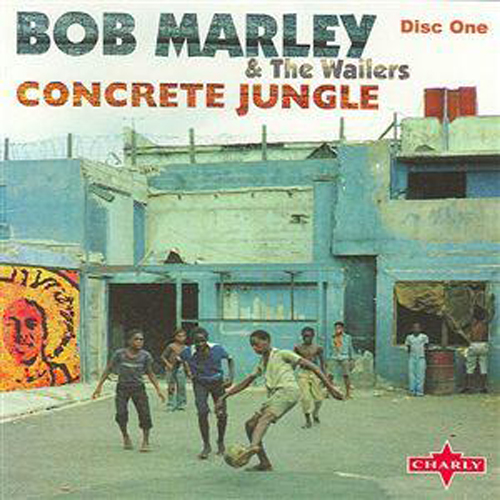
Album: Catch A Fire
Label: Tuff Gong / Island
Producer: Chris Blackwell, Bob Marley and The Wailers
This bleak opening cut from The Wailers debut album on Island Records evokes the hopelessness of life in a place where "darkness has covered my life and has changed my day into night." Chris Blackwell overdubbed a rock-flavored guitar solo to the mix, but the original mix—released on the deluxe edition of Catch A Fire—burns even hotter.
The Wailers "Rastaman Chant" (1973)
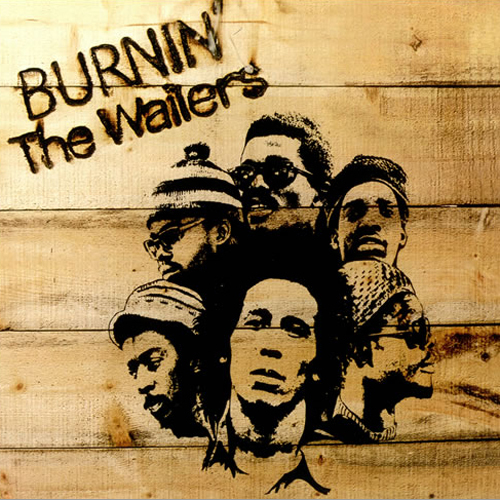
Album: Burnin'
Label: Tuff Gong / Island
Producer: Chris Blackwell, Bob Marley and The Wailers
Set to the distinctive drumbeat of the Niyabinghi—a Rastafarian sect known for gathering in remote locations to beat drums, burn fire, and chant down all forms of corruption—The Wailers' "Rastaman Chant" is an object lesson in the Rasta principle of "word, sound and power."
The Wailers "Lick Samba" (1971)
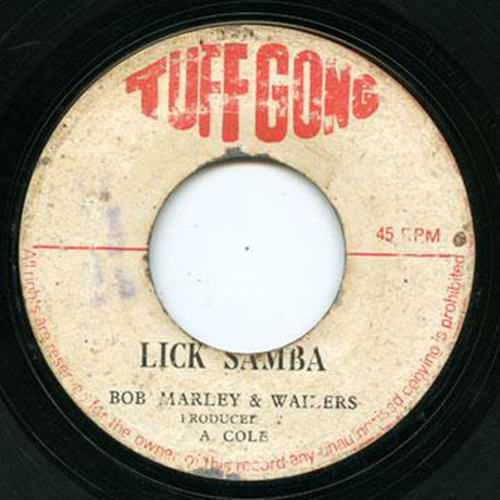
Album: Original Jamaican 45" / Songs of Freedom
Label: Tuff Gong / Island
Producer: The Wailers, Alan Cole
Who says the King of Reggae can't break out of the box from time to time. Marley devotes this song to the Brazilian style of dance that was sweeping the Caribbean.
Bob Marley & The Wailers "Bad Card" (1980)
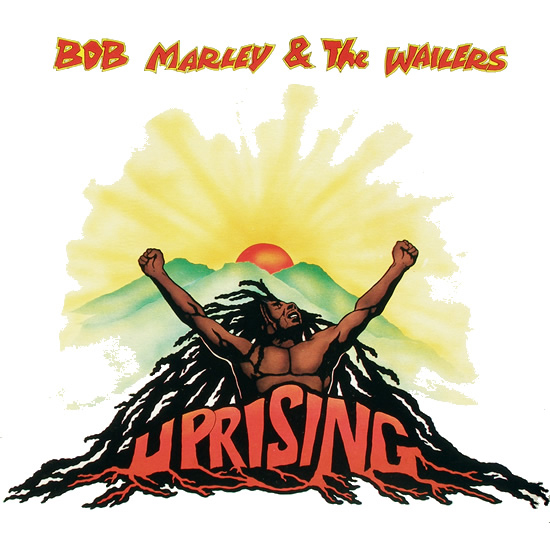
Album: Uprising
Label: Tuff Gong / Island
Producer: Chris Blackwell, Bob Marley and The Wailers
"Can't get me out of the race," Bob sang on this prophetic song whose title refers to a swindler who pulls the wrong card and reveales his own skullduggery.
The Wailers "No More Trouble" (1972)
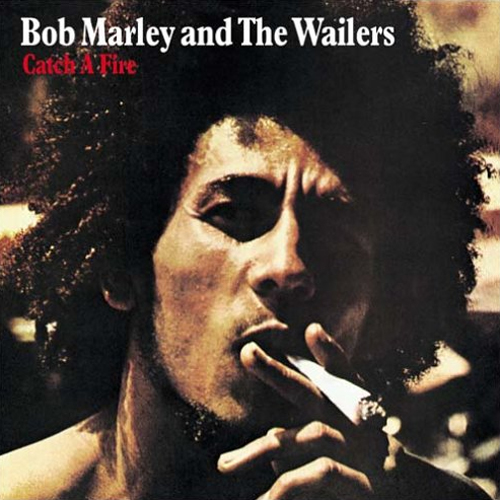
Album: Catch A Fire
Label: Tuff Gong / Island
Producer: Chris Blackwell, Bob Marley and The Wailers
Who could argue with the basic assertion of Bob's chorus? There's no arguing with a statement like "We don't need no more trouble" More challenging perhaps, is to say what we do need. Marley's suggestion? "Love to guide and protect us all."
Bob Marley & The Wailers "Johnny Was" (1976)
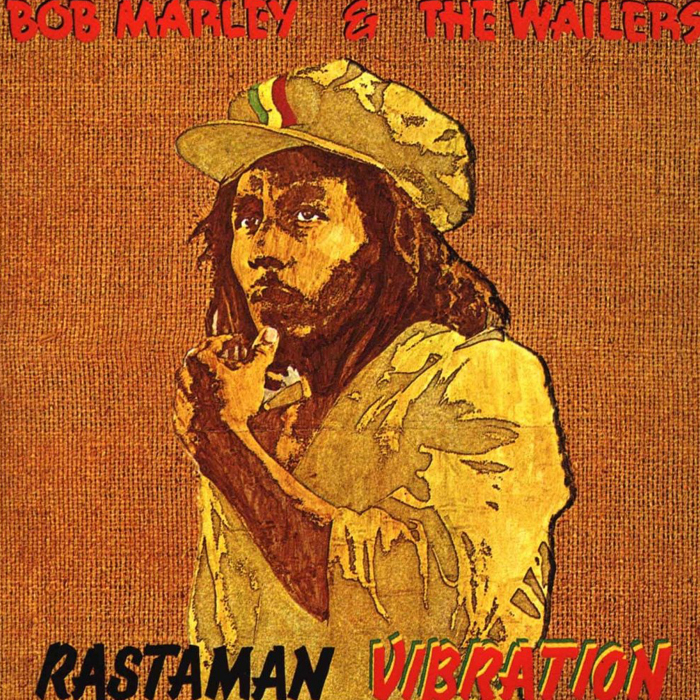
Album: Rastaman Vibration
Label: Tuff Gong / Island
Producer: Bob Marley and The Wailers
This poignant portrait of a grieving mom whose "son had been shot down in the street and died" ranks as one of Marley's most gut-wrenching compositions. At first the death of Johnny is attributed to chance "a stray bullet" but soon enough Marley lays the blame on "the system." But after all the talk of blame is over, we are left with one mother's inconsolable loss: "Can a woman tender care cease toward the child she bear?"
Bob Marley & The Wailers "Natty Dread" (1975)
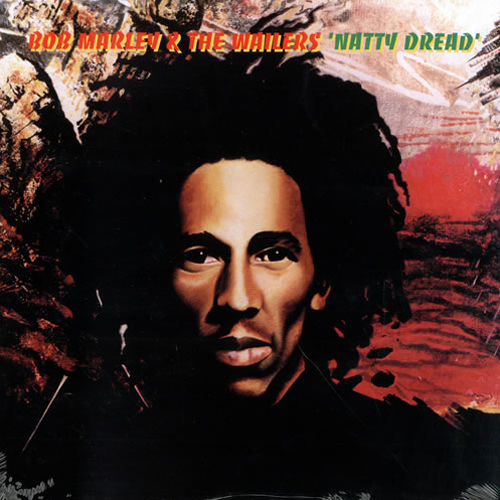
Album: Natty Dread
Label: Tuff Gong / Island
Producer: Rita Marley, Chris Blackwell, Bob Marley and The Wailers
The first album recorded after Marley's childhood friends Peter Tosh and Bunny Wailer broke from The Wailers was Bob's most militant to date. But the title track starts off like a playful walking tour of the streets the comprise the Trenchtown neigihborhood where The Wailers grew up. Before long though, Bob's reflecting how far he is away from home (in Africa) before concluding "Don't care what the world say—I and I gonna have things our way."
Bob Marley & The Wailers "One Drop" (1979)
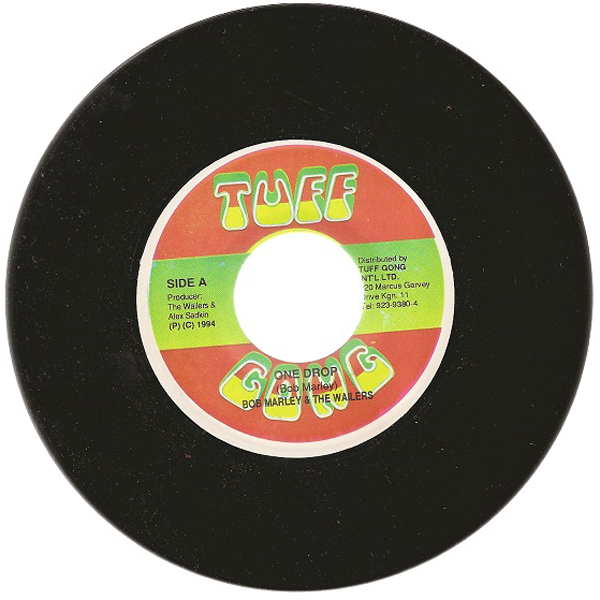
Album: Survival
Label: Tuff Gong / Island
Producer: Alex Sadkin, Bob Marley and The Wailers
This song's title can be read both as a reference to a certain type of classical regge beat—pioneered by Wailers drummer Carlton Barrett, which emphasizes the babkbeat with a rimshot and kick drum accent—and to the American attempt to legislate "racial purity" by mandating that anyone who had one drop of negro blood would not be considered truly "white." Both meanings are equally valid on this Marley masterpiece.
The Wailers "Craven Choke Puppy" (1971)
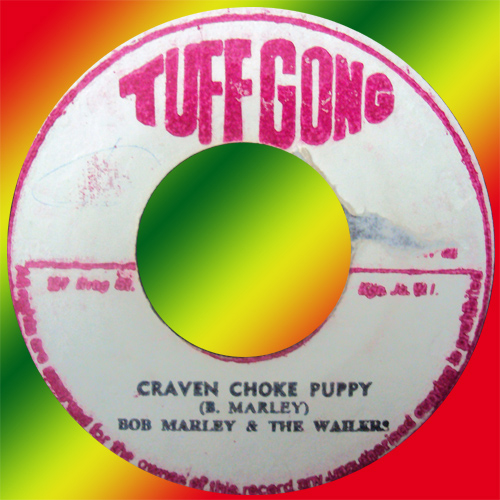
Album: Original Jamaican 45" / Songs of Freedom
Label: Tuff Gong / Island
Producer: The Wailers
More Jamaican folk wisdom set to music, the song describes a greedy dog who tries to eat so much he chokes. Whosoever has ears to hear, let them hear, draw their own conclusions, and perhaps even keep their mouths shut.
The Wailers "Dancing Shoes" (1966)
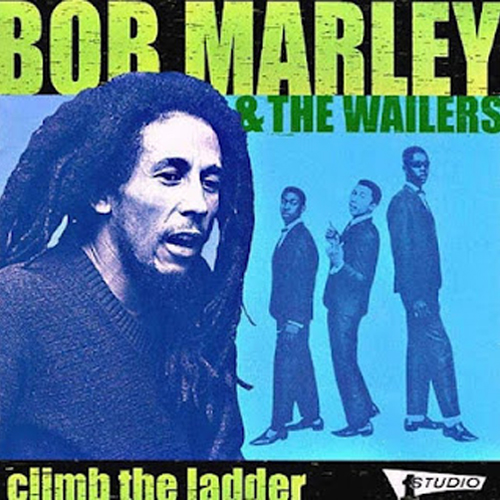
Album: Original Jamaican 45"
Label: Studio One
Producer: Clement "Coxsone" Dodd
"You'll never love another sound like this," The Wailers harmonize on this warm and easy Studio One selection. "It thrills your soul," Were truer words ever sung?
The Wailers "Stand Alone" (1971)
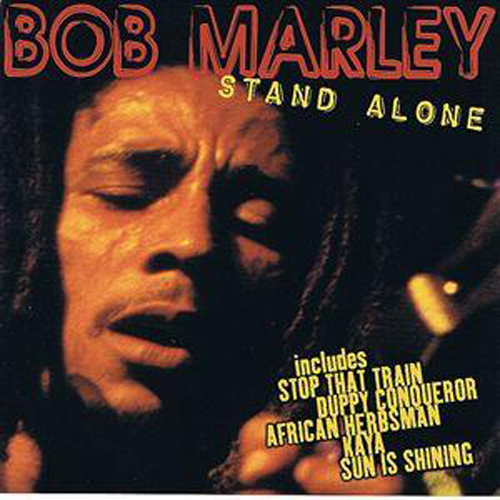
Album: African Herbsman
Label: Trojan
Producer: Lee "Scratch" Perry
"How could I be so wrong, to think that we could get along?" Bob ponders on this tale of love gone wrong. Haunted by memories, his voice speaks to heartbroken folks everywhere.
Bobby Martel "One Cup Of Coffee" (1962)
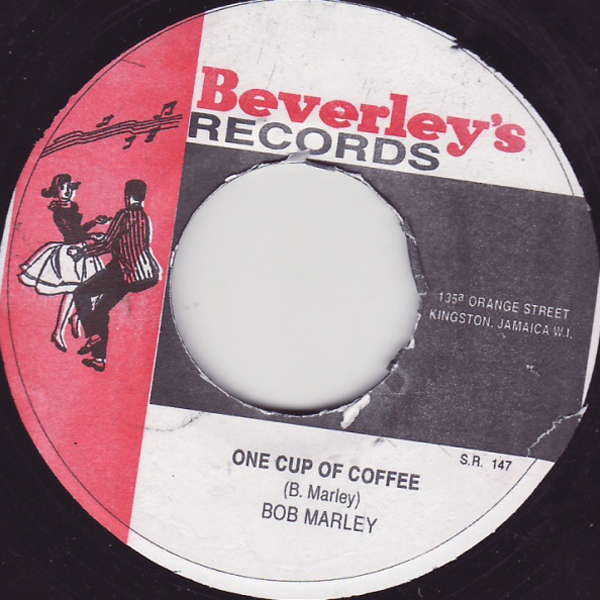
Album: Original Jamaican 45" / Songs of Freedom
Label: Beverley's / Island
Producer: Leslie Kong
For Marley's second release—a cover of an old country & western song—Leslie Kong dreamed up the stage name Bobby Martel. By the time the song ended up on the four-disc retrospective Songs of Freedom, it was properly credited to Bob Marley.
The Wailers "Fussing And Fighting" (1971)
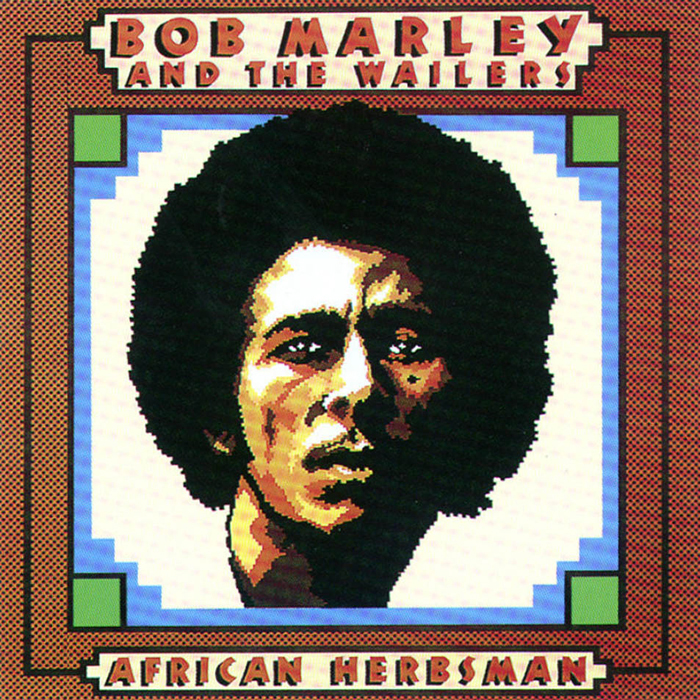
Album: African Herbsman
Label: Trojan
Producer: Lee "Scratch" Perry
Marley calls for unity in the community on this Black Ark production.
The Wailers "Love And Affection" (1965)
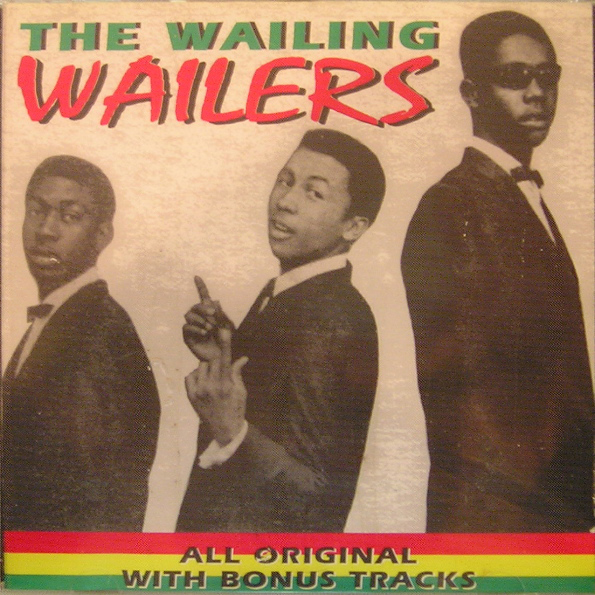
Album: Original Jamaican 45"
Label: Studio One
Producer: Clement "Coxsone" Dodd
Looking back on lost love, the Wailers sing of the heartaches and pain that remain over a bluesy Studio One track that makes the hurt go away.
The Wailers "Screw Face" (1971)
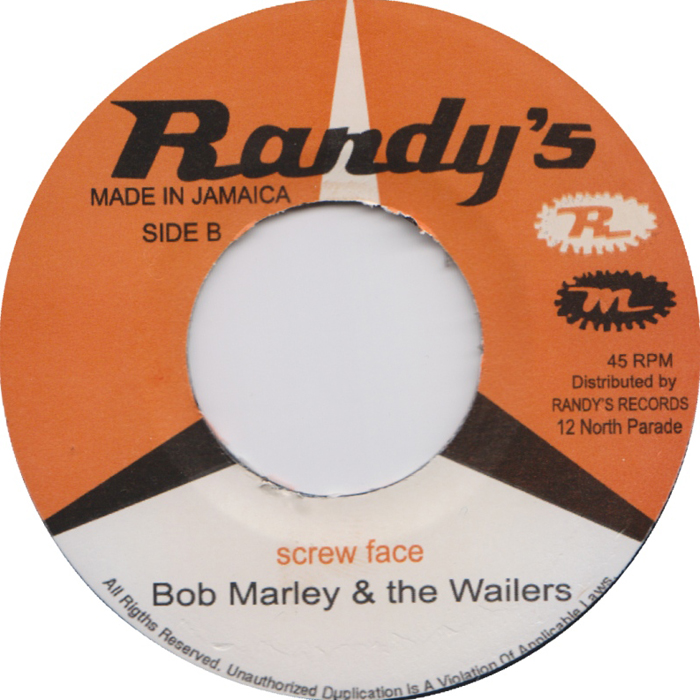
Album: Original Jamaican 45" / Songs of Freedom
Label: Tuff Gong / Island
Producer: Bob Marley and The Wailers
This song's title is based on an old Jamaican folk saying "Duppy know who fi frighten" meaning that not everybody is so easily scared—least of all the man called Tuff Gong.
The Wailers "Don't Rock My Boat" (1970)
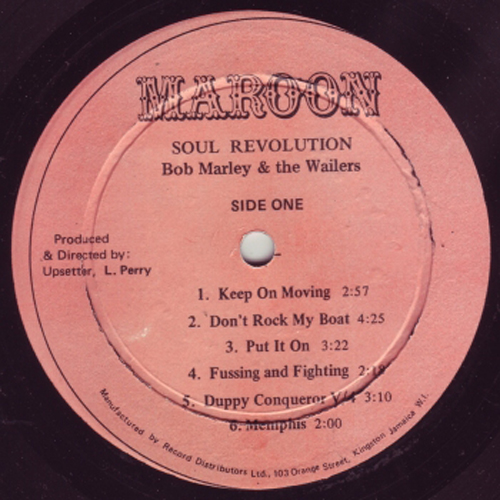
Album: Soul Revolution Pt. II
Label: Upsetter
Producer: Lee "Scratch" Perry
"We're all in the same boat," Bob exclaims in this unsinkable song, "Rocking on the same rock."
Bob Marley & The Wailers "Them Belly Full" (1975)
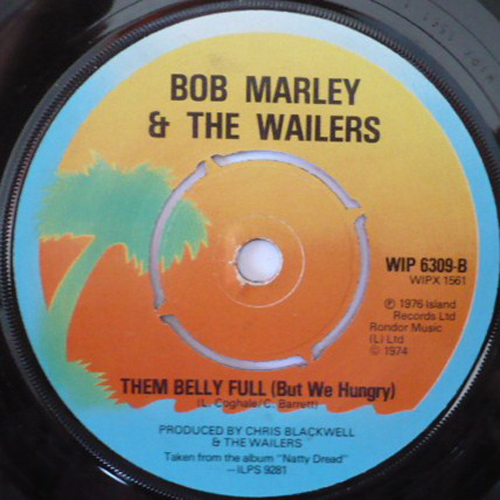
Album: Natty Dread
Label: Tuff Gong / Island
Producer: Chris Blackwell, Bob Marley
"Them belly full but we hungry," Bob Marley observes at the top of this elioquent protest song. What writer has better summarized the politics of the haves versus the have nots? And in case you missed the point, Bob helpfully points out "a hungry man is an angry man."
The Wailers "Sun Is Shining" (1970)
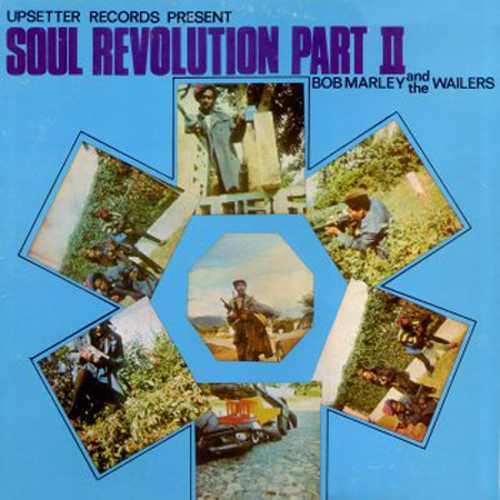
Album: Soul Revolution Pt. II
Label: Upsetter
Producer: Lee "Scratch" Perry
Marley had a gift for weaving the simplest ideas into an unforgettable song. Just three lines is all it takes—"Sun is shining, weather is sweet, make you want to move your dancing feet"—and the spell is cast.
The Wailers "High Tide Or Low Tide" (1972)
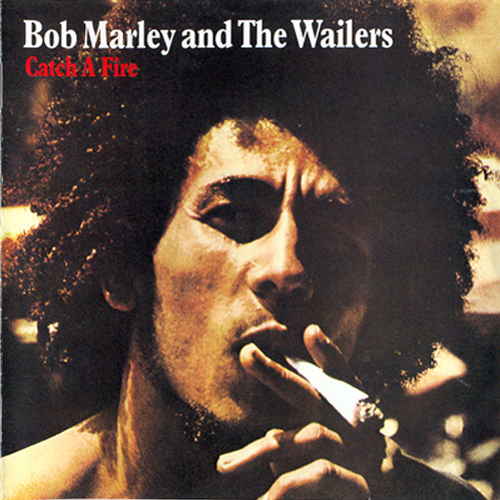
Album: Catch A Fire
Label: Tuff Gong / Island
Producer: Chris Blackwell, Bob Marley and The Wailers
A little-known out-take from the Catch A Fire sessions, "Hide Tide" was one of the highlights of the Songs of Freedom box set. The lyric about Bob overhearing his mother praying in the night for his protection ranks among the most indelible images in Bob's vast repertoire.
Robert Marley "Judge Not" (1962)
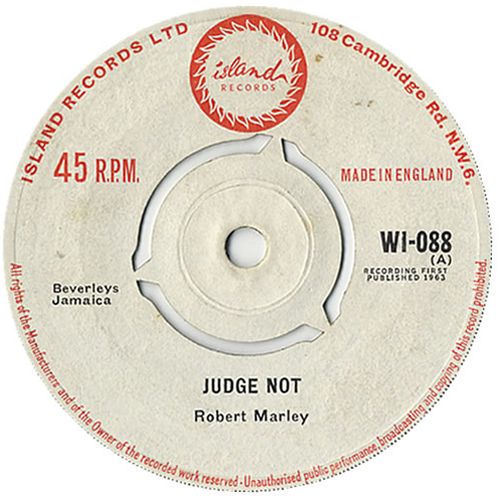
Album: Original Jamaican 45" / Songs of Freedom
Label: Beverley's / Island
Producer: Leslie Kong
Before he could get into the studio with producer Leslie Kong, Bob Marley had to pass an audition by none other than a young Jimmy Cliff. The 17-year-old singer from Trenchtown's first song in that audition was this righteous tune, with lyrics that sound wise beyond Bob's years.
The Wailers "Thank You Lord" (1967)
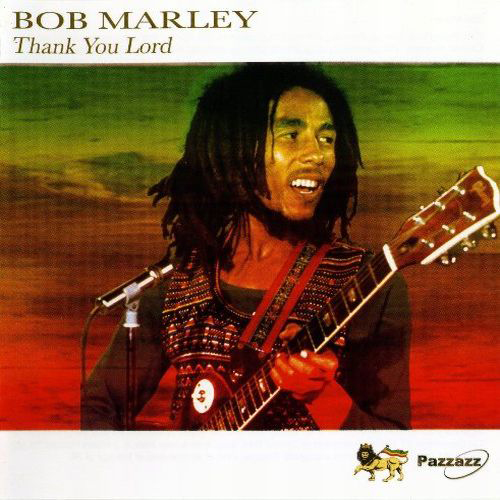
Album: Original Jamaican 45"
Label: Wail'n Soul'm
Producer: The Wailers
Bob deliveres this prayerful song of thanksgiving marked with an aching earnestness that sounds so soulful—don't you agree?
Bob Marley & The Wailers "Jah Live" (1976)
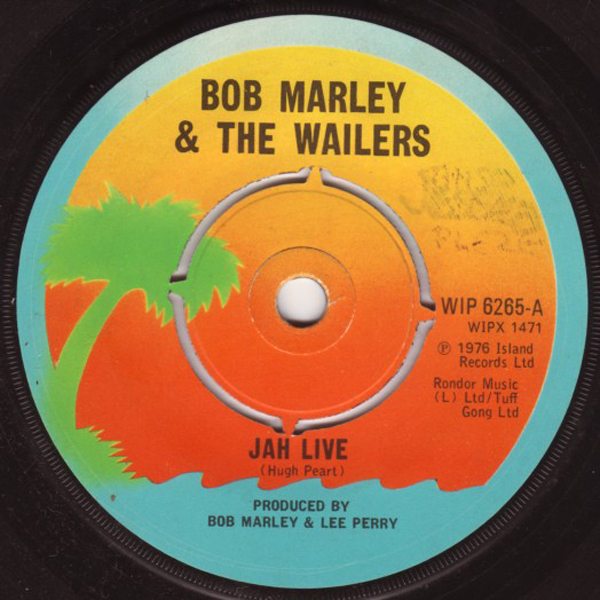
Album: Rastaman Vibration
Label: Tuff Gong / Island
Producer: Lee "Scratch" Perry, Bob Marley and The Wailers
After the Ethiopian Empereor whom Rastas regarded as a black god incarnate was deposed by a Communist coup d'etat and died in exile, one of Bob Marleys children asked him if Jah was really dead. He responded with this song, a simple yet profoundly powerful affirmation of faith, despite all evidence to the contrary.
The Wailers "It's Alright" (1970)
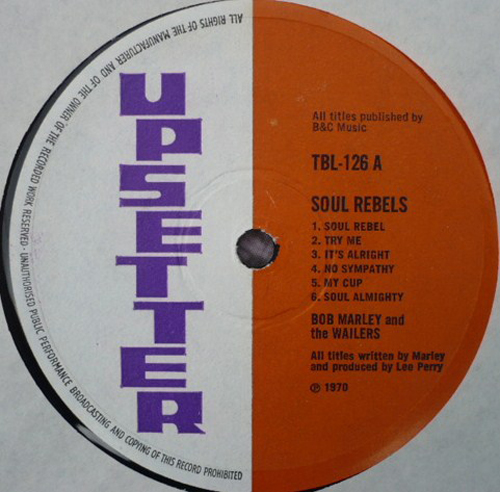
Album: Soul Rebel
Label: Upsetter
Producer: Lee "Scratch" Perry
The Wailers' early 1970s recordings at Lee "Scratch" Perry's Black Ark studios represent perhaps the most crucial phase of their evolution—both musically and philosophically—from Studio One rude boys to the regal Rasta approach that Marley's made famous around the world. This early version of a song that would later be known as "Night Shift" contains the cryptic Rasta slang—"Everything that I do shall be upful and right"—that was the hallmark of so many Perry productions.
The Wailers "I'm Hurting Inside" (1968)
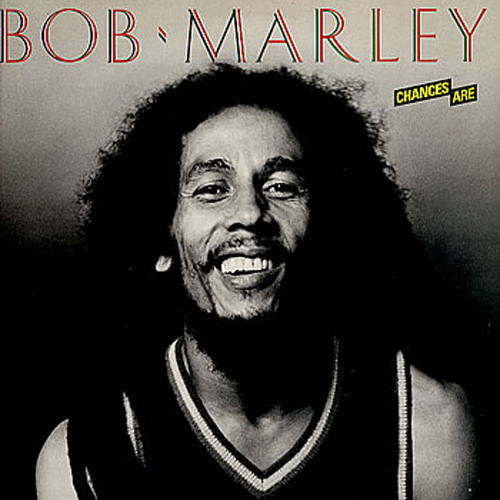
Album: Original Jamaican 45"
Label: Wail'n Soul'm
Producer: The Wailers, Alan Cole
Bob sings this song about the pursuit of happiness with such conviction in his voice that it seems he will never get over his heartbreak. But before long he's off looking for that feeling again—even though he knows that "looking for happiness the road is dangerous."
Bob Marley & The Wailers "Rebel Music (3 O'Clock Roablock)" (1975)
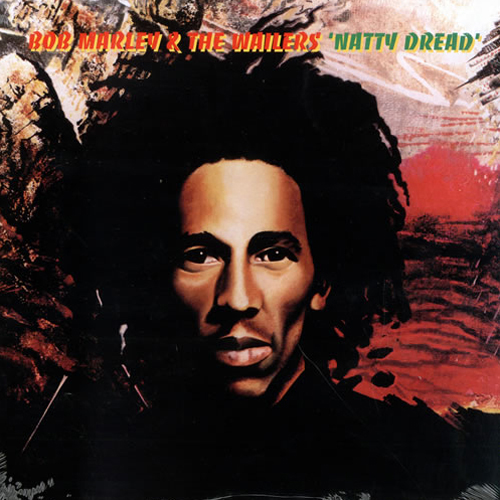
Album: Natty Dread
Label: Tuff Gong / Island
Producer: Chris Blackwell, Bob Marley
This dramatic account of a late-night stop and search by police builds to a tragic conclusion—"I've got to throw away my little herbstalk." The song's highlight is Marley's dismissive description of the documents that the cops demand. When they ask for his "birth certificate" Bob informs them that he "ain't got no birth surfer-ticket on me now."
The Wailers "Corner Stone" (1970)
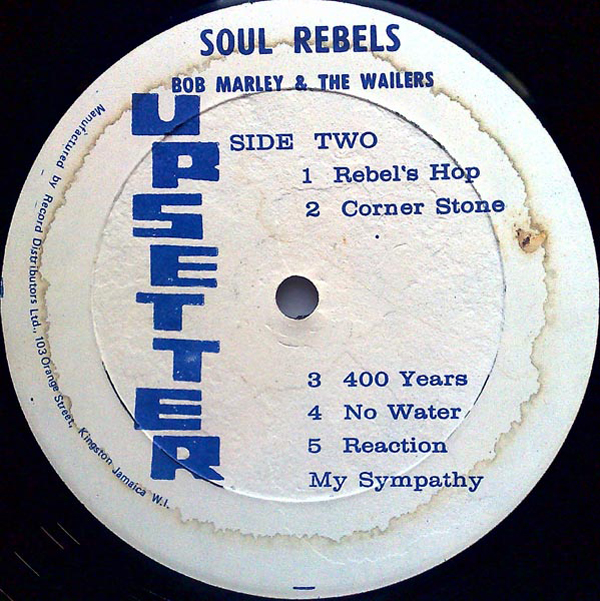
Album: Soul Rebel
Label: Upsetter
Producer: Lee "Scratch" Perry
Taking a page from Psalm 118, Marley sings about how "the stone that the builder refused has become the head cornerstone." It was a message to which any sufferer could relate.
Bob Marley & The Wailers "Could You Be Loved" (1980)
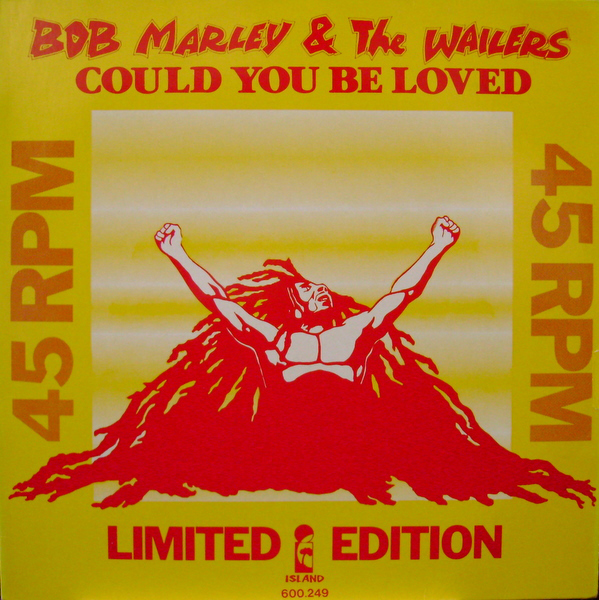
Album: Uprising
Label: Tuff Gong / Island
Producer: Chris Blackwell, Bob Marley and The Wailers
Wailers keyboardist Tyrone Downie sets the pace on this disco-friendly dance tune, one of the few Marley songs to crack the U.S. charts during Marley's lifetime. "Say something" Bob demands as the beat goes on, unwilling to let a great groove just go to waist.
Bob Marley & The Wailers "Zimbabwe" (1979)

Album: Survival
Label: Tuff Gong / Island
Producer: Alex Sadkin, Bob Marley and The Wailers
This song became an anthem for the African rebels who rose up against colonial rule in the former Rhodesia. Marley paid to fly his entire band to perform the song at the ceremony when the former British colony became an independent African state. When the concert was disrupted by riots and tear gas, the Tuff Gong insisted on putting on another show the following day.
The Wailers "Do It Twice" (1970)
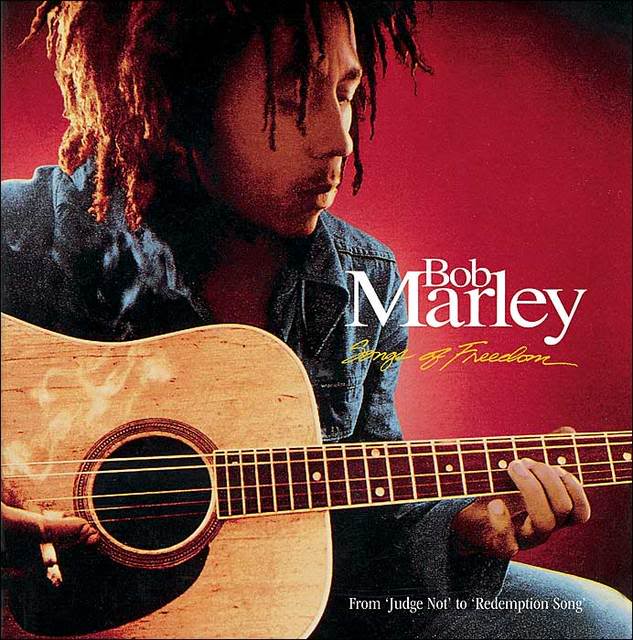
Album: The Best Of The Wailers / Songs of Freedom
Label: Beverley's / Island
Producer: Leslie Kong
Singing about a girl who just won't return his love, Bob reveals his morning routine ("i get up, i sip my cup, my eyes get red..." etc.) The only thing missing is that hard-to-get queen. This song sounds so nice, you've got to play it twice.
Bob Marley & The Wailers "Natural Mystic" (1977)
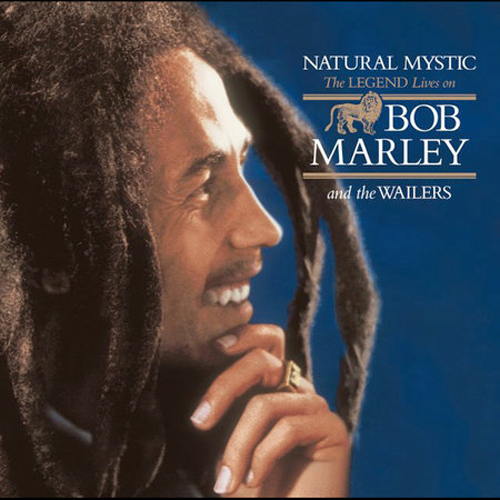
Album: Exodus
Label: Tuff Gong / Island
Producer: Bob Marley and The Wailers
Building slowly from a distant throb to an unstoppable roar, "Natural Mystic" is the kind of record that seeps into the listener's consciousness and takes over. "If you listen carefully now you will hear," Marley sings. When he adds "This could be the first trumpet" he's talking about the apocalyptic Book of Revelation—and the horn section of Dave Madden, Glen DaCosta, and Vin Gordon sound dread like judgment morning. "Many more will have to suffer, many more will have to die. Don't ask me why."
The Wailers "I'm Still Waiting" (1965)
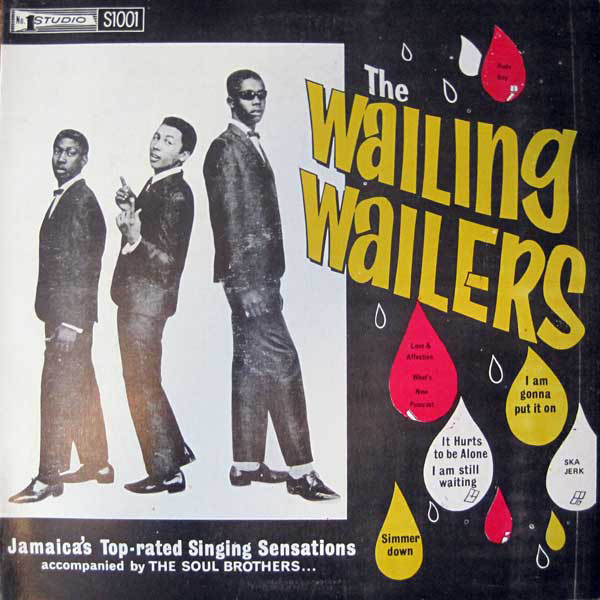
Album: Original Jamaican 45" / Songs of Freedom
Label: Studio One / Island
Producer: Clement "Coxsone" Dodd
When The Wailers performed at top-drawer Kingston venues like The Ward Theater, Bob used to turn up the James Brown-style theatrics for this dramatic number, which never failed to bring down the house.
The Wailers "Soul Rebel" (1970)
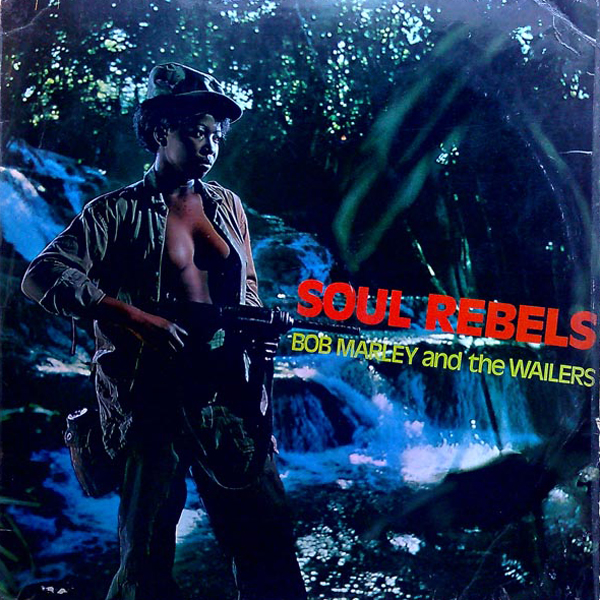
Album: Soul Rebels
Label: Upsetter
Producer: Lee "Scratch" Perry
This certified boomshot nearly summed up Marley's world view at the dawn of the 1970s. Besides being a soulful singer and a rebellious Rasta, as the song said: "I'm a living man—I've got work to do." For the eleven years he had left on earth, the Tuff Gong allowed that work to utterly consume him. And then, one bright morning when his work was over, he flew away home.
The Wailers "Selassie Is The Chapel" (1968)
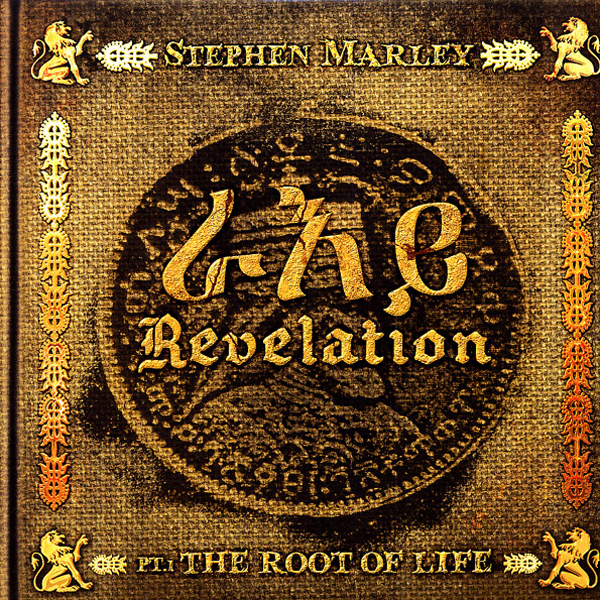
Album: The Complete Bob Marley: Selassie Is The Chapel
Label: JAD Records
Producer: Mortimer Plano
This passionate Rastafarian reworking of The Orioles' doo-wop hit "Crying in the Chapel" was originally pressed in a batch of 26—12 of which were taken to Ethiopia by Marley's bredren "Skill" Cole. Bob, Rita, Bunny, Peter and Constantine "Dream" Walker provide the haunting harmonies; the only other musical accompaniment comes from some Niyabinghi drummers and the occasional guitar strum. The original blank-label pressings of this 45 are the rarest collectors' items in the entire Marley discography. Stephen Marley updated the song on his 2011 album Revelation Part 1: The Root of Life, repping his family legacy to the fullest.
The Wailers "Caution" (1970)

Album: The Best Of The Wailers
Label: Beverley's
Producer: Leslie Kong
This song finds Bob in James Brown mode, telling his band to "Hit me from the top" with that "crazy mother funk." Consider this one a friendly warning to Bob's brothers walking the slippery road. "Don't want to see you on the ground."
The Wailers "Nice Time" (1967)
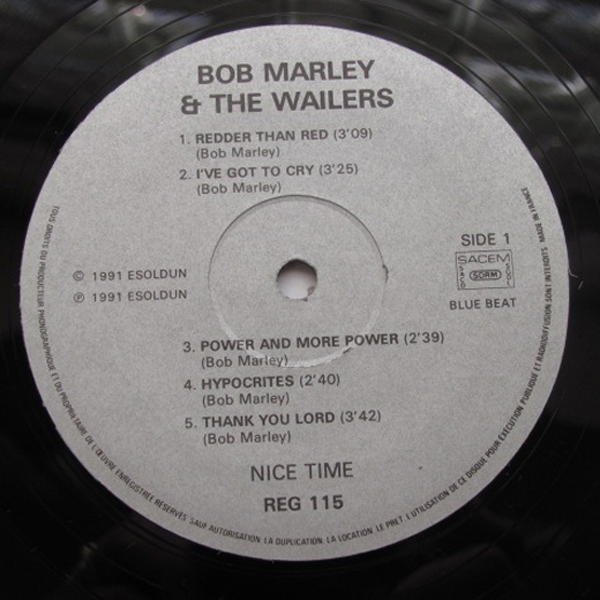
Album: Original Jamaican 45"
Label: Wail'n Soul'm
Producer: The Wailers
This irresistible invitation to dance was recorded soon after the joyous arrival of Bob and Rita's firstborn child Cedella. The song's title became her nickname—and understandbly, a sentimental favorite of the future Melody Maker.
The Wailers "African Herbsman" (1971)
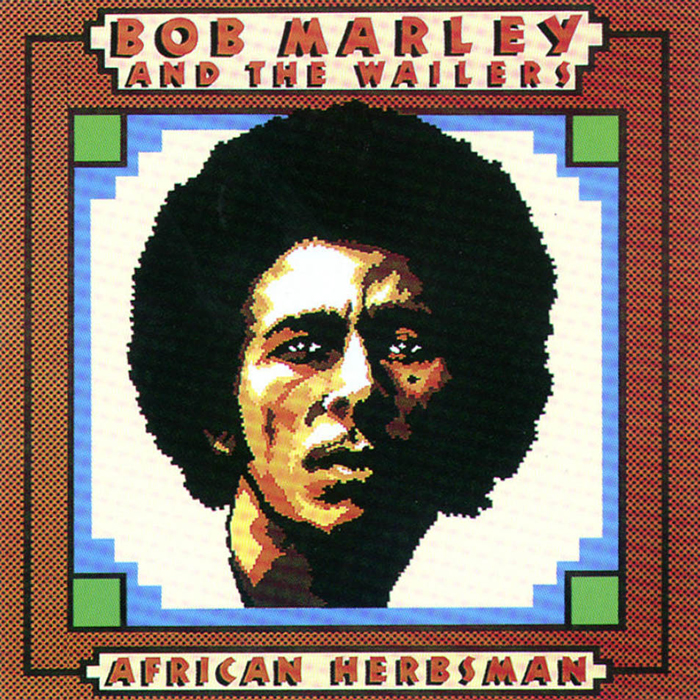
Album: African Herbsman
Label: Trojan
Producer: Lee "Scratch" Perry
Inspired by the Richie Havens rocked-out "Indian Ropeman," Marley and Scratch transform the tune into a kush-scented meditation on how "the remembrance of today is the sad feeling of tomorrow." This cryptic classic became the title track for Trojan's stellar 1973 collection of early Wailers gems.
The Wailers "Hammer" (1968)

Album: Songs Of Freedom
Label: Island
Producer: The Wailers / Johnny Nash, Danny Sims
There is some difference of opinion surrounding this song, which speaks to the proper means for dealing with people who hold you, tease you, and provoke you. Bob alternates between needing a "hammer" and a "rammer." Either way, the message is clear. Bunny and Peter's high harmonies on this one are outrageous.
The Wailers "Back Out" (1970)
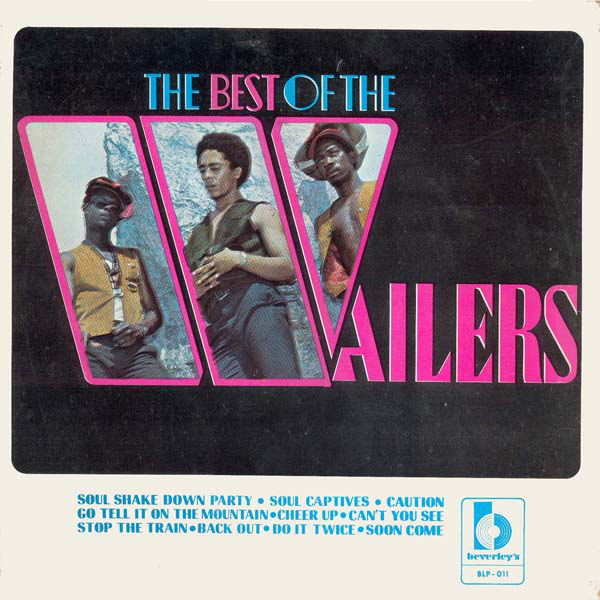
Album: The Best Of The Wailers
Label: Beverley's
Producer: Leslie Kong
The Gong devotes this tune to reprimanding those who have "no behavior" and don't know "who could be their savior." Bob's advice to these unenlightened louts? "Back out—and shut your mouth."
The Wailers "Simmer Down" (1964)
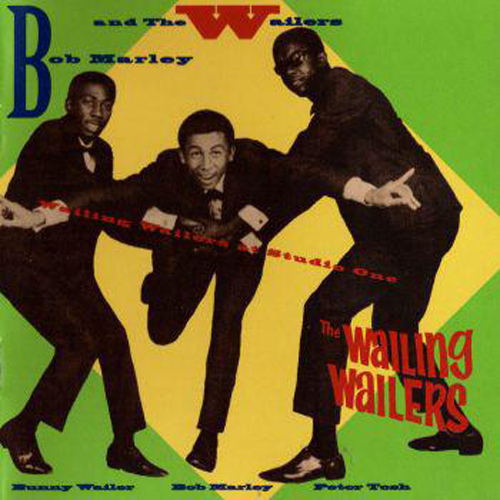
Album: Original Jamaican 45" / Songs of Freedom
Label: Studio One / Island
Producer: Clement "Coxsone" Dodd
The raucous ska blaster was aimed directly at Kingston's burgeoning rude boy audience, urging them to control their temper ("or the battle with be hotter.") With Don Drummond on trompone, Roland Alphonso and Tommy McCook on saxophone, and Jackie Mittoo on keyboards, the band in the recording studio was every bit as hot as the vocal quintet of Bob Marley, Peter Tosh and Bunny Livingstone—plus lesser-known Wailers Junior Braithwaite and Beverly Kelso. In these days Studio One selections were all recorded live in a single take. That's a lot of star power in one room.
Bob Marley "Acoustic Medley" (1971)
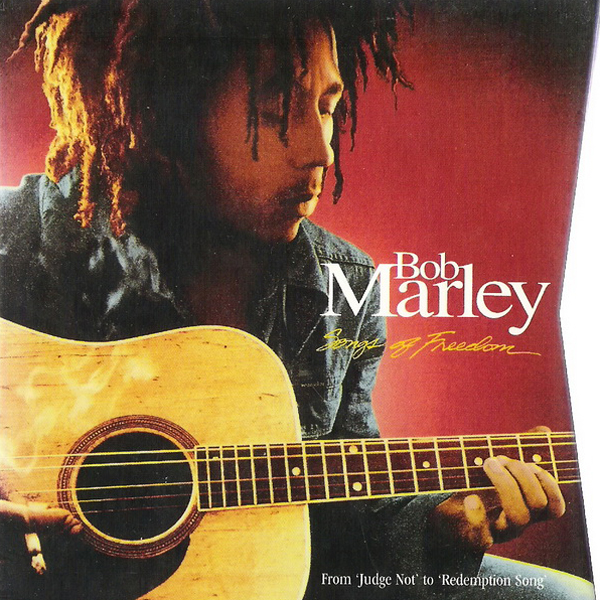
Album: Songs Of Freedom
Label: Tuff Gong / Island
Producer: The Wailers
This intimate acoustic recording, first released on the Songs of Freedom box set, offers a rare glimpse of Marley raw and uncut—just one man, one guitar, and an never-ending supply of sweet music. The Gong runs through "Guava Jelly," then segues to "This Train" and "Cornerstone" before touching two seldom-heard gems, "Comma Comma" and "Dewdrops." To close it out he comes back with "Stir It Up" and "I'm Hurting Inside." Hey Mr. Music, sure sound good to me.
The Wailers "Bus Dem Shut" (1967)
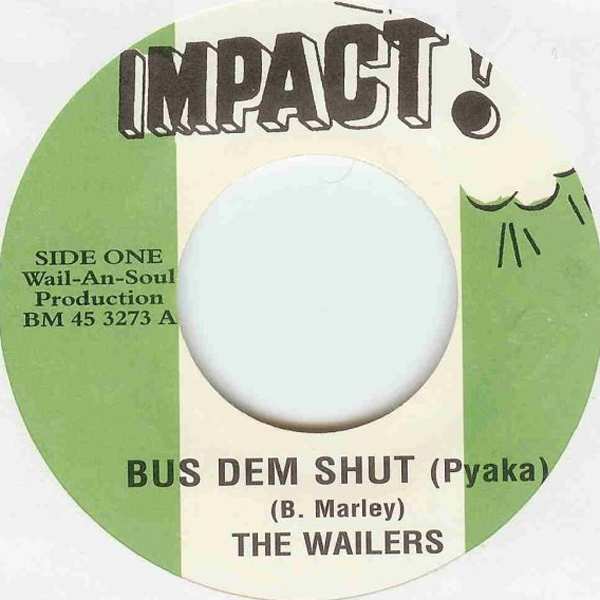
Album: Original Jamaican 45"
Label: Wail'n Soul'm & Impact labels
Producer: Mortimer Plano
This song is also known as "Pyaka"—yardie slang for a greedy person who won't leave you alone. The line "everything you run down pon" sums up the concept nicely. The song may have a light-hearted tone, but the title "Bus Dem Shut" made it clear that The Wailers were not the ones to try any slick stuff with.
Bob Marley & The Wailers "Punky Reggae Party" (1977)
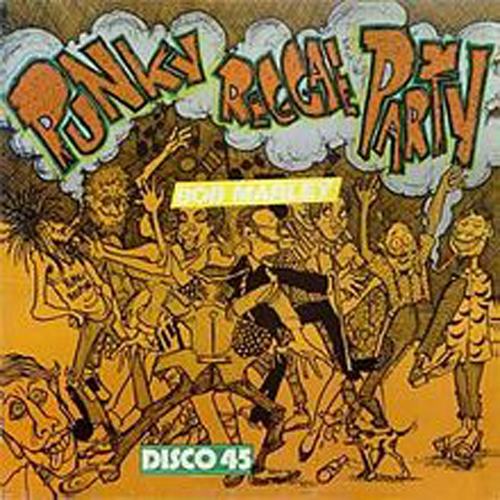
Album: Original 12" single
Label: Tuff Gong
Producer: Lee "Scratch" Perry
While cooling out in England following a 1976 assassination attempt in Jamaica, Marley was struck by the mutual respect that prevailed among punks and Rastas in London's eclectic underground music scene. This song, produced by Lee "Scratch" Perry and backed by members of the UK reggae band Aswad, was both celebration of rebel solidarity and an invitation to a very cool party. It's a safe bet that, as Bob and Scratch swear, "No boring old farts will be there."
The Wailers "Hypocrites" (1967)
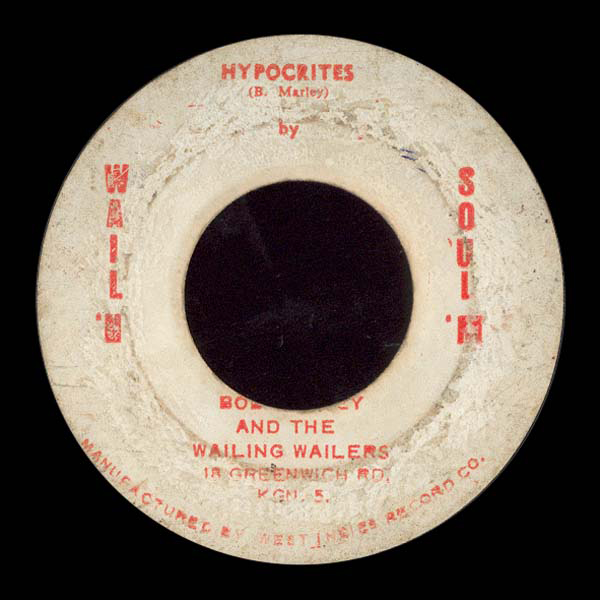
Album: Original Jamaican 45"
Label: Wail'n Soul'm
Producer: The Wailers
Tossing off derisive nicknames like "Dryland tourist"—one who claims to have traveled the world but has neven left his island home—Marley displays his sharp wit and a keen eye for human folly on this dreamy Studio One selection, whose rhythm track became the basis for countless future dancehall smashes from Lone Ranger's "Natty Dread On The Go" to Half Pint's "Mr. Landlord" to Bushman's "Fire Bun A Weak Heart." The search for wolves in sheep's clothing would remain an abiding concern in both Marley's life and music. Years later, in "No Woman No Cry," he sang about "observing the hypocrites mingle with the good people we meet."
The Wailers "Jailhouse" (1965)
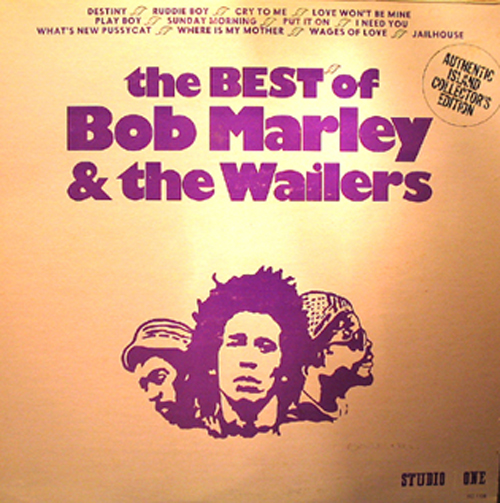
Album: Original Jamaican 45"
Label: Studio One
Producer: Clement "Coxsone" Dodd
The Wailers come with another rude-boy selection—this time with a decidedly more defiant tone. "Can't fight against the youths now" soon turns to "we're gonna rule this land." Bob Marley and his brethren sang about rude-boy life like they knew what they were talking about.
The Wailers "Small Axe" (1970)
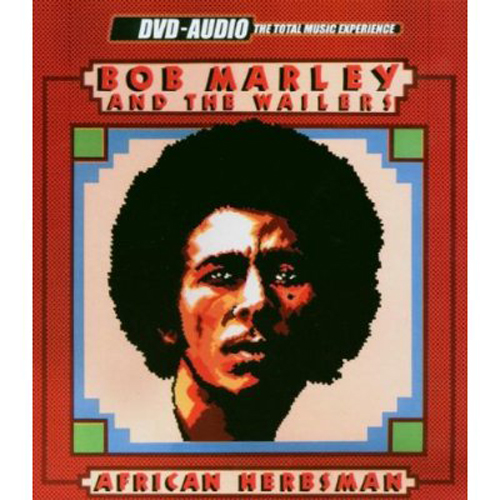
Album: African Herbsman
Label: Trojan
Producer: Lee "Scratch" Perry
The image of a small axe chopping down a big tree is a classic David & Goliath metaphor. But many scholars have also suggested that the "small axe" was a coded reference to "small acts"—independent artists like The Wailers and Scratch who were rising up against the "big trees" in the music industry. Their sound was certainly "well sharp"—enough to cut down all the competition.
The Wailers "Duppy Conqueror" (1970)
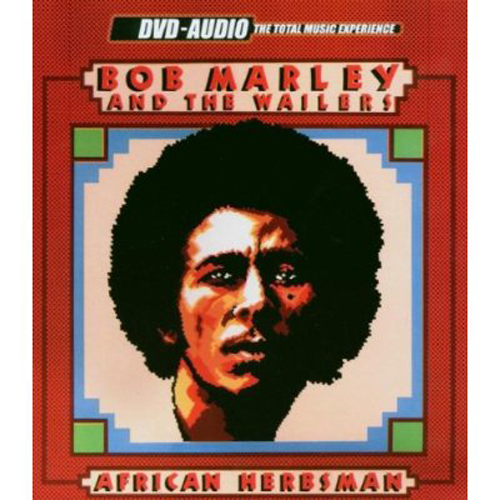
Album: African Herbsman
Label: Trojan
Producer: Lee "Scratch" Perry
A duppy is a Jamaican term for a ghost or an evil spirit. When Bob calls himself a "duppy conqueror" he is both declaring himself to be more powerful than any supernatural adversaries, and dismissing his human adversaries as evil spirits. Nicely played.
Bob Marley & The Wailers "Exodus "(1977)

Album: Exodus
Label: Tuff Gong / Island
Producer: Bob Marley and The Wailers
As Vivien Goldman points out in her indispensible studiy The Book of Exodus, the title track of the record Time magazine called the greatest album of the 20th Century was partially inspired by Ernest Gold's soundtrack to the 1960 film of the same name. Recorded during Marley's own exodus from Jamaica to London, this majestic song still resonates on multiple levels. On his Welcome To Jamrock album, Damian Marley reworked his father's classic with a dancehall twist in the song "Move."
Bob Marley & The Wailers "Who Colt The Game" (1977)
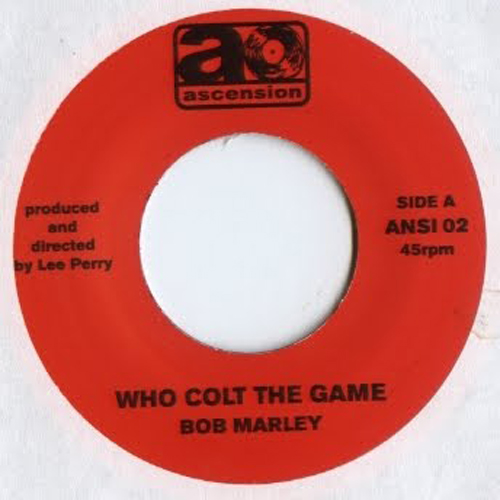
Album: Original Jamaican 45 / Lost Treasures of the Ark
Label: Upsetter / Island
Producer: Lee "Scratch" Perry
This song asks the question, who made a wrong move and rigged the contest? "It's not Natty Dready," Bob sings indignantly over a stripped-down Scratch groove. "It must be bald-heady." Although the raw energy of Marley's vocal performance is electric, this remarkable record remains relatively unknown.
The Wailers "I'm Gonna Put It On" (1965)
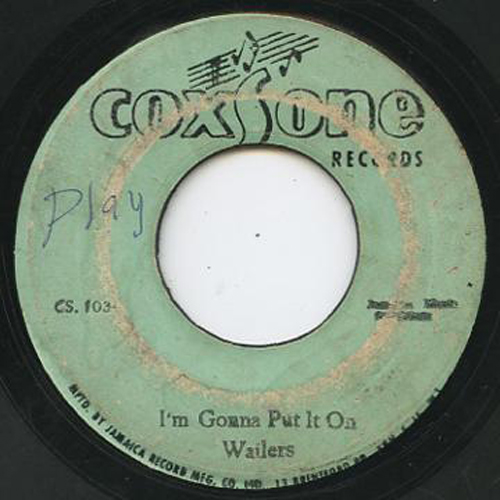
Album: Original Jamaican 45" / Songs of Freedom
Label: Studio One
Producer: Clement "Coxsone" Dodd
Marley never tired of reworking this prayerful song of thanksgiving, whose mystical lyrics describe a sort of spiritual rebirth. And as is often the case with Coxsone Dodd's Studio One productions, the original cut stands up just as well as any later "improvements."
The Wailers "Mr. Chatter Box" (1970)
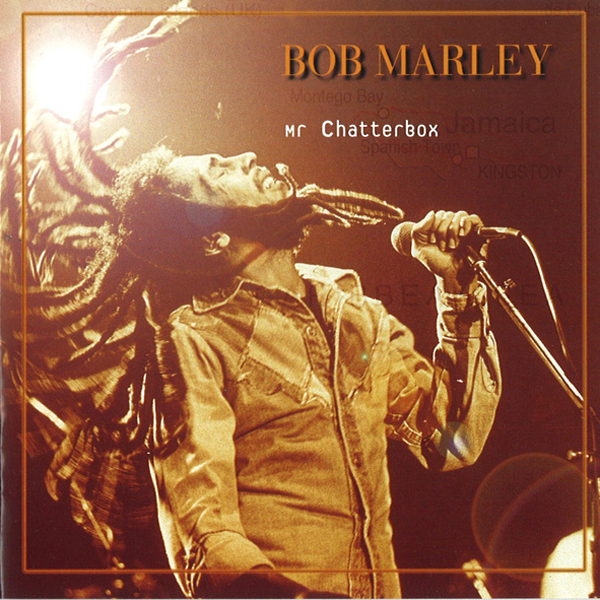
Album: Original Jamaican 45" / Songs of Freedom
Label: Randy's / Island
Producer: Bunny "Striker" Lee
One of the few songs The Wailers recorded with the prolific Jamaican producer Bunny Lee was this sweetly belligerent rebuke of folks who love to carry news all over the place. Although it's not quite a "Stop Snitching" track, the Gong does sound prepared to back up his Tuff talk: "Biff-n baff-n, boof—those are the blows you're gonna get," Bob sings. "Mr. Talkative, I know you will regret."
The Wailers "Bend Down Low" (1966)
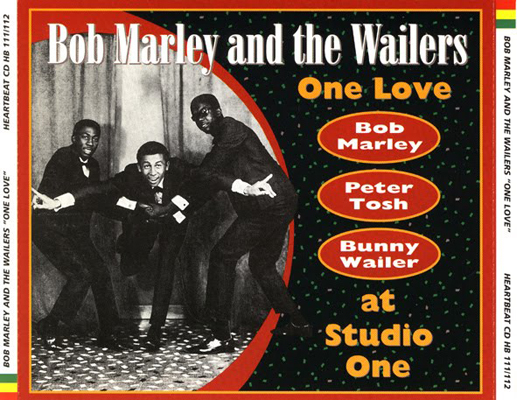
Album: Original Jamaican 45"
Label: Wail'n Soul'm
Producer: Clement "Coxsone" Dodd, The Wailers
This folksy Wailers hit with its playfully suggestive lyrics was recorded at Studio One but released on The Wailers own Wail'M Soul'M imprint under an arrangement to let the young hitmakers reap increasing rewards for their increasingly successful recording career. Bob would return to the song often, reworking it for Danny Sims and again on Natty Dread.
Bob Marley & The Wailers "Three Little Birds" (1977)
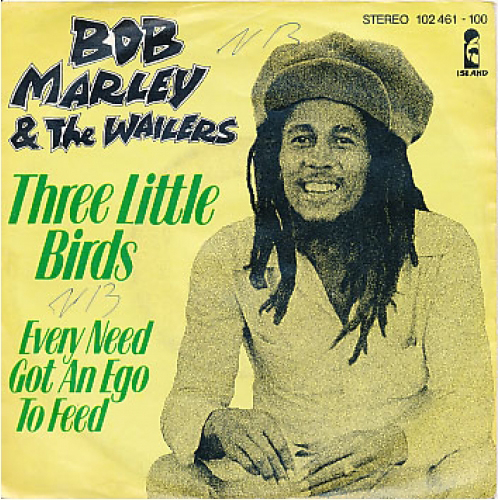
Album: Exodus
Label: Tuff Gong / Island
Producer: Bob Marley and The Wailers
Packing the power of a parable, "Three Little Birds" is the sort of song that can perk up even the gloomiest pessimist. Somehow Marley's advice—"Don't worry about a thing"—never sounds as dippy as, say, Bobby McFerrin's "Don't Worry Be Happy."
The Wailers "Mr. Brown" (1970)
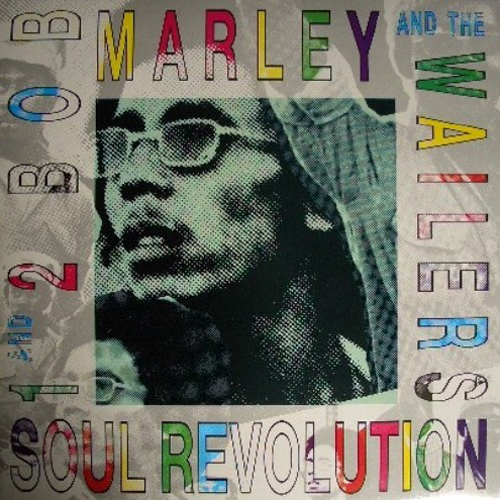
Album: Soul Revolution
Label: Upsetter
Producer: Lee "Scratch" Perry
Based on a far-fetched news report about a coffin on wheels that was said to roll around Kingston town with three talking john crows (or vultures) perched on top, all asking for Mr. Brown. (These spectral fowls are the exact opposite of the "Three Little Birds" Marley would later sing of in such an irie fashion.) By contrast, "Mr. Brown" sounds like a "duppy story" set to music—the type of ghostly tale that Bob would sometimes tell his own children at bed time. And in the hands of a mad musical genius like Scratch Perry, it became a reggae-flavored forerunner to Michael Jackson's "Thriller."
The Wailers "Mellow Mood" (1966)
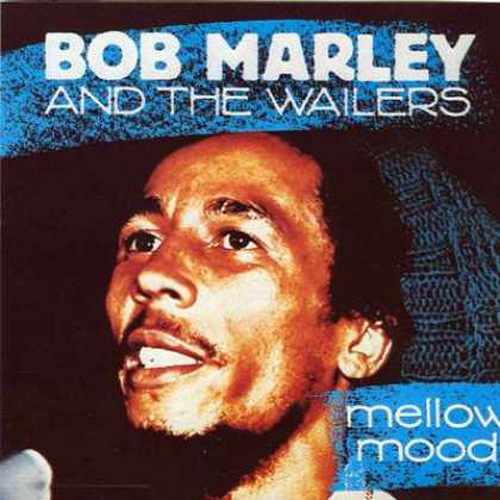
Album: Original Jamaican 45" / Songs of Freedom
Label: Wail'n Soul'm / Island
Producer: The Wailers
One of the great opening lines of Marley's repertoire gives way to a song that is both a celebration of music's sensual power and a musical seduction. When Bob sings "we can rock it all night long," he really means it.
Bob Marley & The Wailers "Jammin'" (1977)
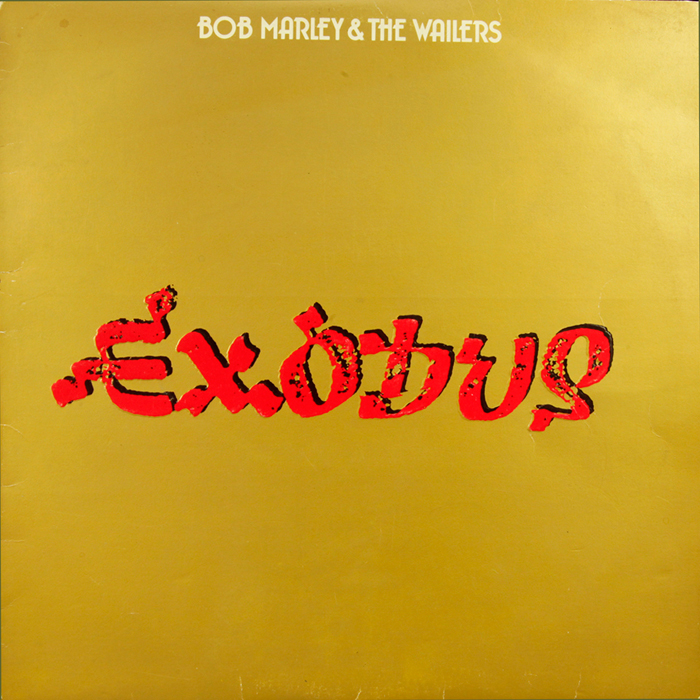
Album: Exodus
Label: Tuff Gong / Island
Producer: Bob Marley and The Wailers
Like many of Marley's best songs, "Jammin" can be understood both as making music and making love. The choice is yours—but why have one when you can have both?
The Wailers "Get Up, Stand Up" (1973)
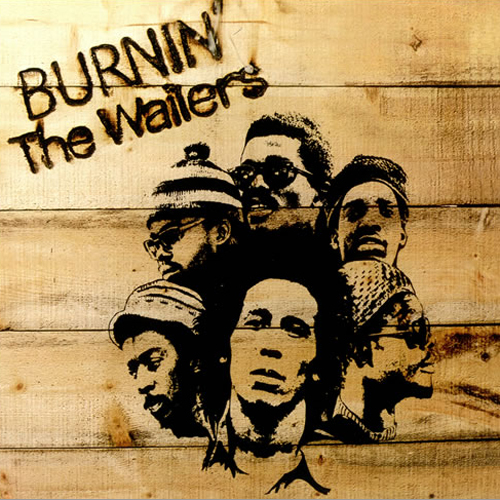
Album: Burnin'
Label: Tuff Gong / Island
Producer: Chris Blackwell, Bob Marley and The Wailers
Decades before OutKast encouraged fans to "Get up, get out and get something," The Wailers were much more specific in their musical call to action. Simply getting "something" was not enough—the real mission was to "stand up for your rights."
Bob Marley & The Wailers "Buffalo Soldier (1983)
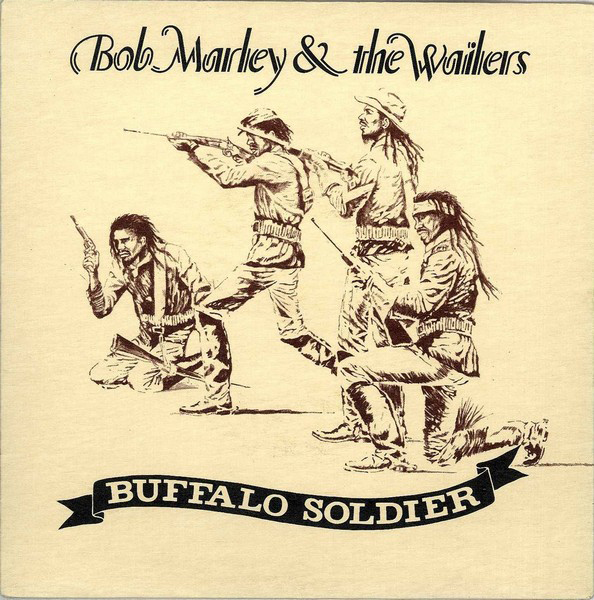
Album: Confrontation
Label: Tuff Gong / Island
Producer: Errol Brown, Rita Marley, Bob Marley and The Wailers
Marley was deeply affected by stories of the black soliders who fought with the U.S Cavalry during the Indian Wars. The song he wrote in their honor went on to become the best known of his posthumous releases. For evidence of the song's universal appeal and lasting impact, look no further than Vanilla Ice's reprehensible cover version on the ill-advised 2009 album, Vanilla Ice Is Back!
The Wailers "Stir It Up" (1967)
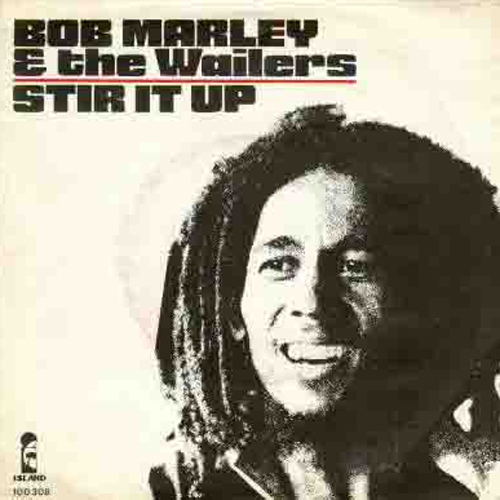
Album: Original Jamaican 45"
Label: Wail'n Soul'm
Producer: The Wailers
Johnny Nash scored a Billboard chart hit with this sultry Marley-penned selection, but Bob's own version has a little extra edge when he delivers lines like "I'll push the wood, blaze the fire—satisfy your heart desire." Call him naughty dread.
The Wailers "I Shot The Sheriff" (1975)
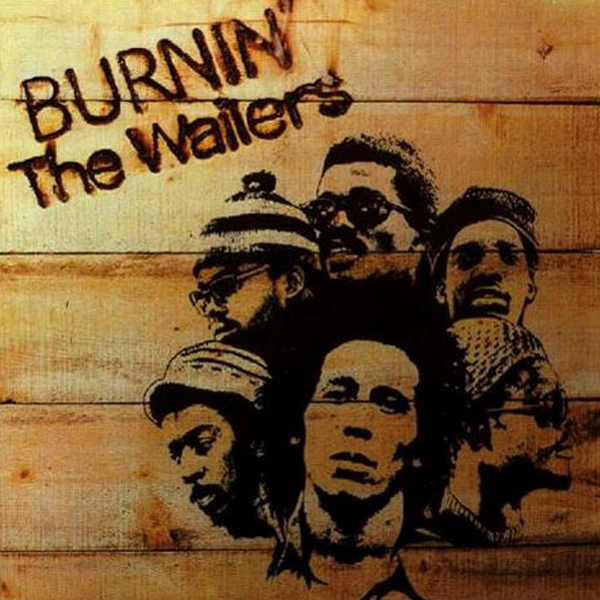
Album: Burnin'
Label: Tuff Gong / Island
Producer: Chris Blackwell, Bob Marley and The Wailers
When Eric Clapton covered this Bob Marley composition it was a rock radio hit, but when Bob sang it himself it sounded more like a call to arms: "Sheriff John Brown always hated me. For what I don't know. Every time I plant a seed, he say kill it before it grow." (Hey, at least he didn't shoot the deputy!) This song is just one of Marley's musical seeds that has firmly taken root, spreading all around the world.
Bob Marley & The Wailers "Redemption Song" (1980)
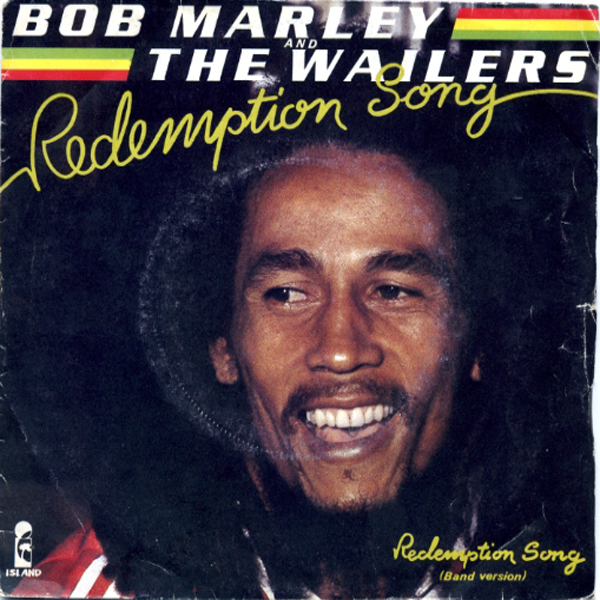
Album: Uprising
Label: Tuff Gong / Island
Producer: Chris Blackwell, Bob Marley and The Wailers
When Marley turned in the tracks that would become Uprising—the last album released during his lifetime—Island Records founder Chris Blackwell told him it sounded like there was something missing. Bob soon returned with this breathtaking solo recording in which he accompanies himself on the acoustic guitar. What begins as a universal slave narrative soon becomes a meditation on the power of human spirit. Lyrics like "Emancipate yourselves from mental slavery, none but ourselves can free our minds" have cemented Marley's reputation as one of the greatest songwriters who ever lived.
Bob Marley & The Wailers "Waiting In Vain" (1977)
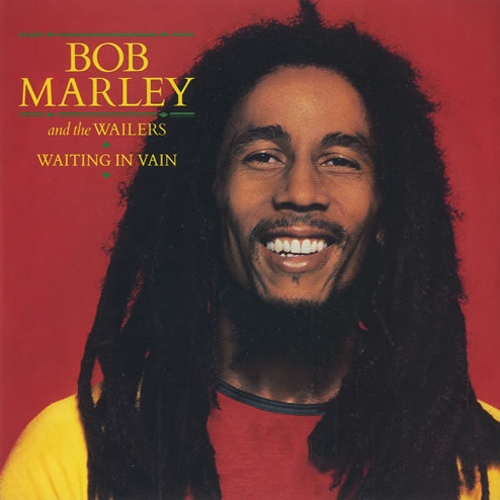
Album: Exodus
Label: Tuff Gong / Island
Producer: Bob Marley and The Wailers
Marley's enchanting melody and lyrics on this song of unrequited love are matched only by Junior Marvin's lilting guitar work—surely one of the sweetest solos ever recorded. And the song seems to have done the trick—judging by the size of his family, Bob did not wait in vain for long.
The Wailers "Trenchtown Rock" (1971)
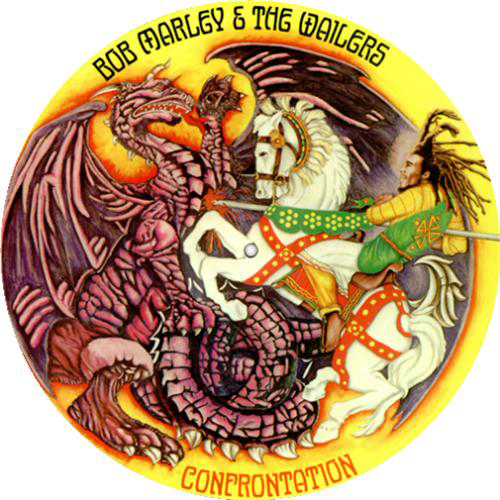
Album: African Herbsman
Label: Trojan
Producer: Lee "Scratch" Perry
Bob Marley came up with some great opening lines over the years, but few can match the first line of this song he wrote about the Kingston slum where he and The Wailers were raised: "One good thing about music, when it hits you feel no pain." Every notorious ghetto should have such an uplifting theme song.
Bob Marley & The Wailers "No Woman No Cry" (1975)
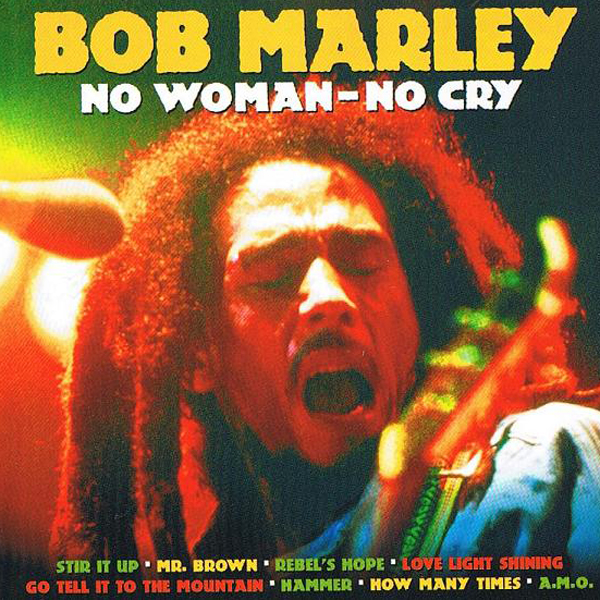
Album: Live!
Label: Tuff Gong / Island
Producer: Chris Blackwell, Bob Marley and The Wailers
Recorded in July 1975 at London's Lyceum Theatre, every last detail of this live rendition of "No Woman No Cry" is perfect—from the churchical keyboards to the languid guitar solo. The crowd responded with almost religious fervor, and a legend was born.
Bob Marley & The Wailers "War" (1976)

Album: Rastaman Vibration
Label: Tuff Gong / Island
Producer: Bob Marley and The Wailers
Marley adapted the words of a seminal speech by the Ethiopian Emperor H.I.M. Haile Selassie I—whom devout Rastas considered to be a living God—and set them to music, creating one of the most powerful recordings of his entire catalogue: "Until the color of a man's skin is of no more significance than the color of his eyes," he sang, "I've got to say war."
Bob Marley & The Wailers "One Love / People Get Ready" (1977)
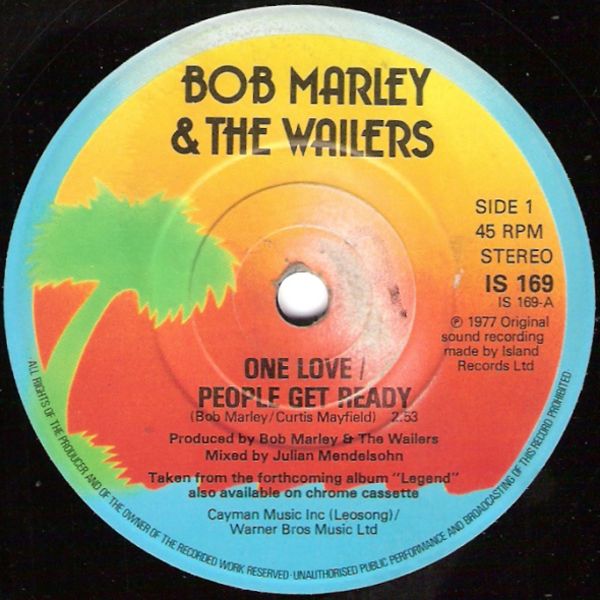
Album: Exodus
Label: Tuff Gong / Island
Producer: Bob Marley and The Wailers
Marley's best known song, which interpolates parts of Curtis Mayfield & The Impressions' civil rights anthem "People Get Ready," grew to be so popular that it eventually became the theme song of the Jamaica Tourist Board. But lyrics like "Let's get together to fight this Holy Armageddon" and "There ain't no hiding place from the father of creation" affirm that this is much more than a vacation soundtrack. The concept of "One Love" has proved profound enough to stick in the popular imagination—witness Nas's song of the same name—although humankind is still struggling to put that concept into practice.

